- connect with us
- 1800-572-9877
- [email protected]
- We’re on your favourite socials!


Frequently Search
Couldn’t find the answer? Post your query here
- Science Articles
PhD after BTech: Documents & Eligibility, Procedure, Top Colleges, Fees
Updated On: April 24, 2024 07:28 pm IST
Is PhD after BTech Possible?
Overview of phd after btech, eligibility for phd after btech in india, documents required for phd for btech, how to apply for phd after btech in india, phd after btech admission process 2024, top colleges for phd after btech in india.
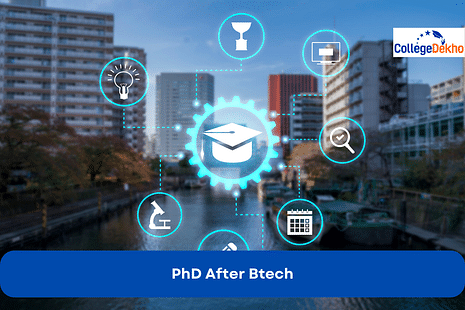
Going for a PhD after BTech in India opens doors to advanced research opportunities and a rewarding academic journey. For those who've completed graduation with a BTech course , a PhD emerges as a viable option for advanced research prospects. Unlike the conventional path, the integrated PhD route offers direct admission after BTech while one can also choose an alternate way through recommendations from the faculty. Colleges like the National Institute of Technology (NIT) Arunachal Pradesh and Indian Institute of Technology (IIT) Ropar are only two names from the list of colleges offering a direct PhD after BTech in India . Scroll through to learn more about pursuing PhD right after a BTech course. Also Read:
Yes, it is indeed possible to pursue a PhD after BTech. Many universities in India and abroad offer this option for students with a bachelor's degree in STEM fields or others. However, gaining admission isn't straightforward and requires navigating a lengthy process. So, what routes can you take to secure PhD admission after BTech? If you're contemplating this path, you have two options: direct PhD after BTech or seek a recommendation from academic faculty.
The direct application process requires applying directly through the institute's official website. Admission is subject to meeting the specific eligibility criteria of that particular institute. The latter involves reaching out directly to your university department faculty, who may advocate for your PhD admission candidacy.
Exploring PhD opportunities post-BTech involves navigating various paths, from integrated programs to direct admissions. This concise overview highlights key considerations, including program durations, specialization choices, application processes, and essential components for successful applications.
| Course Duration | 3 to 6 years |
| Specializations Offered | Engineering, Doctorate Program, PhD/Dual PhD, Computer Science and Engineering, Chemistry, Civil Engineering |
| Admission/Selection Process | Select specialization and research topic, Apply directly through institute's website, Seek recommendations from faculty/supervisors |
| Eligibility Criteria | Entrance exams such as JEST, GATE, UGC NET, CSIR NET often required or recommended. Letters of Recommendation, Statement of Purpose, and Resume for application. Some universities may request optional research proposal outlining intended area of research. |
| Entrance Exams Required | , , , |
| Top Colleges | IIT Delhi, IIT Kanpur, IIT Guwahati, IIT Hyderabad, etc. |
Admission to most PhD course after BTech requires a strong background in the intended field, including proficiency in advanced mathematical concepts, economics, software, and statistics. Consistent high performance in post-secondary education is preferred, though lower scores can be compensated with relevant activities, projects, and language skills.
- Entrance exams such as JEST, GATE, UGC NET, and CSIR NET are frequently required or recommended by institutions for PhD applications after BTech.
- Letters of Recommendation (LORs), along with a well-crafted Statement of Purpose (SOP) and Resume, are critical components of the application process, offering valuable insights into the candidate's motivations, suitability for the program, and aspirations. Additionally, aligning the final year project with the PhD research topic enhances the application's strength and demonstrates the candidate's commitment to their chosen field.
- Some universities may request a research proposal outlining the intended area of research. Candidates aspiring for a PhD program are typically expected to possess thorough knowledge and experience in their chosen field, including the beneficial addition of research papers or publications.
- Test Score Sheets from exams like JEST, GATE, UGC NET, CSIR NET.
- SOP and LORs.
- Detailed outline of intended research topic and methodology, if requested.
- Marksheets and certificates from 10th, 12th, and graduate or postgraduate degrees.
- SC/ST/OBC-NC/GEN-EWS/PD Certificate( If applicable)
The PhD admission after BTech is selective, favouring candidates with relevant degrees in Physics or related fields. While many universities follow these criteria, some may have more flexible requirements. Here's a brief guide to applying for a PhD directly after BTech:
- Research available PhD programs and determine your areas of interest.
- Choose a topic for your PhD dissertation and identify a potential supervisor.
- Submit a well-crafted application to the supervisor, addressing any inquiries or concerns.
- Complete the application form and provide all necessary documents.
- Await the admission decision while continuing to enhance your research and mathematical skills in preparation for your PhD journey after BTech.
Gaining admission to a PhD after Btech at an educational institution involves a series of steps. From exploring program offerings to submitting applications and undergoing selection processes, this introduction provides a concise overview of the essential steps aspirants must follow to secure admission.
- Step 1: Explore the institution's official website to learn about available PhD programs and select your field of interest.
- Step 2: Keep an eye out for admission announcements in publications or on the university's website, typically released four to five months before the course begins.
- Step 3: Complete and submit the PhD application form within the institution's specified timeline, ensuring all required documents and fees are provided.
- Step 4: Some institutions may require a research proposal alongside the application, which is reviewed by the institution's research unit.
- Step 5: Shortlisted candidates are often required to participate in entrance exams and other admission processes conducted by the institution.
- Step 6: Upon successful admission, candidates are assigned supervisors or guides for their PhD research.
Candidates can choose from a range of top colleges to pursue PhD after Btech in India. From prestigious institutions like the Indian Institutes of Technology (IITs) to renowned private universities, it encompasses a range of fields including engineering, computer science, management, and more. The following table presents a comprehensive overview of course fees for PhD specializations across several prominent universities in India.
|
|
|
|---|---|---|
| Engineering | 1,79 LPA |
| Doctorate Program | 1,50 LPA |
| PhD/Dual PhD | 5.00 LPA |
| Computer Science and Engineering | 3 to 5 LPA |
| Engineering & Technology | 1.50 LPA |
| Chemistry | 1.63 LPA |
| Computer Science and Engineering | 7.20 LPA |
| Civil Engineering | 4-8 LPA |
| Civil Engineering | 1.95 Lakh |
Engineering and Technology | 2.18 LPA | |
| Computer Science | 2.91 LPA |
Pursuing a PhD after BTech offers rich research prospects and academic fulfilment. With integrated programs and direct admissions available, aspiring scholars can dive into advanced research directly after graduation. This guide equips them with insights into admission processes and opportunities for collaborative research. Through dedication and exploration, the journey towards innovation and knowledge awaits. Related Links:
For more information on PhD after Btech, call us at 1800-572-9877 or post your questions in Collegedekho’s QnA section.
Are you feeling lost and unsure about what career path to take after completing 12th standard?
Say goodbye to confusion and hello to a bright future!
The duration of PhD after BTech in India typically ranges from 3 to 6 years. Initially, you'll need to select your specialization and determine the specific topic you wish to pursue for your doctorate. Alternatively, you can opt to apply for a PhD directly after completing your BTech.
Yes, you can do PhD without GATE. there are opportunities without the need for an entrance examination. If you have a CGPA of 8.0 or above in engineering or B.Tech from a recognized educational institution, you may be eligible for direct admission.
Yes, you can do a PhD without a Masters degree. Even though the traditional pathway for earning a PhD typically involves completing a Bachelor's degree, followed by a Master's degree, and then proceeding to pursue a PhD.
Yes, you can do a PhD at various IITs like Delhi, Kanpur, Guwahati, Hyderabad, and Kharagpur after completing your BTech. Although eligibility criteria may differ, common requirements include a minimum of 65% marks or 6.5 CPI in the master's degree, first division in the bachelor's degree, and achieving a JRF/95 percentile or higher in GATE or equivalent performance in a relevant national or international examination.
Yes, it is possible to pursue PhD directly after BTech in India provided you meet certain criteria. You have the option to enroll in an integrated Master's and PhD program or obtain direct recommendations from your professors or supervisors.
Was this article helpful?
Be the first to know.
Get Access to Latest Updates
Related Questions
Engineering 4th year student eligible for gate exam.
Yes, even 3 Rd year students are also eligible
What is the cutoff rank for lateral entry in civil.plz reply
Anurag Engineering College accepts TS EAMCET 2024 scores for a lateral entry admission to BTech in Civil Engineering programme. As per the round 1 cutoff, the closing rank for Civil Engineering is 90458. However, the closing rank might vary depending on the category of the candidates and round. Based on your TS EAMCET score, you will be allocated seats through the seat allotment round.
When does counselling start for engineering students?
AP EAMCET counselling 2024 process for both the phases is over. Counselling registration had begun from July 1 and ended on July 7 for phase 1. The final phase AP EAMCET Counselling 2024 had begun from July 24 with the exercising of web options.
Do you have a question? Ask us.
Typical response between 24-48 hours
Get personalized response
Free of Cost
Access to community
Similar Articles
- CUHP UG Admission 2024 through CUET: Check Dates, Eligibility, Application Process, Admission Process
- AP OAMDC Degree Admission 2024: Seat Allotment (Out), Web Options (Closed), Eligibility & Latest Updates
- Central University of South Bihar (CUSB) UG Admission 2024 through CUET: Merit List (Out Today), Admission Process, Application Process, Courses Wise Eligibility & Updates
- TS CPGET Palamuru University Colleges 2024: College-Wise Course Details, Fees
- TS CPGET Mahatma Gandhi University Colleges 2024: College-Wise Course Details, Fees
- TS CPGET Satavahana University Colleges 2024: College-wise course details, fees
Recent Articles
- TS CPGET JNTU, Hyderabad Colleges 2024: College-wise course details, fees
- TS CPGET TMV, Hyderabad Colleges 2024: College-wise course details, fees
- TS CPGET Kakatiya University Colleges 2024: College-Wise Course Details, Fees
- TS CPGET OU Colleges 2024: College-Wise Course Details, Fees
- TS CPGET College-Wise Seat Matrix and Courses 2024
- TS CPGET College-Wise Fees 2024
- TS CPGET Telanagana University Colleges 2024: College-wise course details, fees
- Tripura University UG Admission 2024 through CUET: Application Process, Courses Wise Eligibility, Admission Process
- Dr. Harisingh Gour Vishwavidyalaya UG Admission 2024 through CUET: Dates, Application Process, Courses Wise Eligibility, Admission Process
- The English and Foreign languages University UG Admission 2024 through CUET: Dates, Application Process, Courses Wise Eligibility, Admission Process
- Assam University UG Admission 2024 through CUET: Merit List (Aug- 10), Admission Process and Latest Updates
- TS DOST Admission 2024: Special Phase Seat Allotment (Released), Documents Required, Fee
- Rajiv Gandhi University UG Admission 2024 through CUET: Dates, Application Process, Courses Wise Eligibility, Admission Process
- National Sanskrit University UG Admission 2024 through CUET: Dates (Out), Application Process, Course Wise Eligibility, Admission Process
- Mahatma Gandhi Central University UG Admission 2024 through CUET: Dates, Application Process, Courses Wise Eligibility, Admission Process
- Guru Ghasidas Vishwavidyalaya UG Admission 2024 through CUET: Dates, Application Process, Courses Wise Eligibility, Admission Process
- Mahatma Gandhi Antarrashtriya Hindi Vishwavidyalaya UG Admission 2024 through CUET: Dates, Application Process, Courses Wise Eligibility, Admission Process
- Central University of Kerala UG Admission 2024 through CUET: Dates, Application Process, Courses Wise Eligibility, Admission Process
- Indira Gandhi National Tribal University UG Admission 2024 through CUET: Dates, Application Process, Courses Wise Eligibility, Admission Process
- Pondicherry University UG Admission 2024 through CUET: Application Process, Courses Wise Eligibility, Admission Process
- Maulana Azad National Urdu University UG Admission 2024 through CUET: Dates, Application Process, Courses Wise Eligibility, Admission Process
- Banaras Hindu University UG Admission 2024 through CUET: Check Dates, Eligibility, Application Process, Admission Process
- Central Sanskrit University UG Admission 2024 through CUET: Dates, Eligibility Criteria, Application Process, Admission Process
- Shri Lal Bahadur Shastri National Sanskrit University UG Admission 2024 through CUET: Dates, Application Process, Courses Wise Eligibility, Admission Process
Recent News
- AP OAMDC Seat Allotment Result 2024 (Released) LIVE Updates: Download link, fees
- AP Degree Seat Allotment 2024 Released: Download link, reporting dates
- CUHP CUET UG Merit List 2024 Released: Direct PDF download link
- AP OAMDC Degree Seat Allotment Expected Release Time 2024
- CPGET Result Link 2024 Activated: Rank Card out at cpget.tsche.ac.in
- AP OAMDC Seat Allotment 2024 Phase 1 on August 10 at oamdc1-apsche.aptonline.in
- TS DOST Seat Allotment Result Special Phase 2024 Released: Download link, reporting dates
- TS DOST Special Phase Seat Allotment Expected Release Time 2024
- AP PGCET Counselling Registration 2024 Begins: Link to pay processing fee, instructions
- APPGCET Counselling Dates 2024 Released: Schedule for registration, web options, allotment
- DU CSAS 2024 Choice Filling Last Date August 7: Important details regarding simulated rank list
- AP OAMDC Seat Allotment Release Date 2024: APSCHE to release allotments on THIS date
- CSIR NET Response Sheet July 2024 Session likely this week at csirnet.nta.ac.in
- Odisha CPET Choice Filling Link 2024 Activated: Important instructions
- Odisha CPET Merit List 2024 (Released) LIVE Updates: Subject-wise merit ranks at pg.samsodisha.gov.in
- Sambalpur University CPET Expected Cutoff 2024 Course-Wise
- Berhampur University CPET Expected Cutoff 2024 Course-Wise
- Odisha +2 Second Merit List Release Time 2024
- Odisha CPET Merit List Release Time 2024: SAMS Odisha confirms time for PG merit ranks
- Odisha CPET Merit List Release Date 2024
- CUET UG Delhi University Science (Hons) Expected Cutoff 2024 Institute-Wise
- CUET UG Delhi University B.Sc Expected Cutoff 2024 College-Wise
- Will 90 to 129 Marks in CUET 2024 be enough for DU B.Sc Chemistry?
- Will 125 to 145 Marks in CUET 2024 be enough for DU B.Sc Botany Admission?
- Will 70 to 80 Marks in CUET 2024 be enough for DU B.Sc Botany Admission?
- Will 80 to 89 Marks in CUET 2024 be enough for DU B.Sc Chemistry Admission?
- Will 130 to 150 Marks in CUET 2024 be enough for DU B.Sc Chemistry Admission?
- Will 80 to 90 Marks in CUET 2024 be enough for DU B.Sc Botany Admission?
- CUET UG Delhi University B.Com Expected Cutoff 2024 College-Wise
- CUET UG Toppers List 2024 (Available): Subject and state-wise toppers names, percentile scores
Trending Now

Subscribe to CollegeDekho News
Top 10 science colleges in india.
- Approved by: Other, National Assessment and Accreditation Council (NAAC), National Board of Accreditation (NBA)
- Type: Private
- Download Brochure
- Approved by: NAAC, National Assessment and Accreditation Council (NAAC)
- Type: University
- Approved by: University of Delhi, NAAC, National Assessment and Accreditation Council (NAAC)
- Type: Public
- Approved by: UGC, NAAC, AICTE, National Assessment and Accreditation Council (NAAC)
- Type: Private UnAided
- Approved by: UGC, NAAC, National Assessment and Accreditation Council (NAAC)
- Type: Private Aided
- Approved by: Other
- Type: Local Body
- Get Free Counselling
- Approved by: Other, AICTE
Popular Degrees
- B.Sc. (Bachelor of Science)
- M.Sc. (Master of Science)
- B.Sc. + M.Sc.
CollegeDekho's expert counsellors can help you with all your doubts
- Enter a Valid Name
- Enter a Valid Mobile
- Enter a Valid Email
- By proceeding ahead you expressly agree to the CollegeDekho terms of use and privacy policy
Join us and get exclusive education updates!
Details Saved

Your College Admissions journey has just begun !
Try our AI-powered College Finder. Feed in your preferences, let the AI match them against millions of data points & voila! you get what you are looking for, saving you hours of research & also earn rewards
For every question answered, you get a REWARD POINT that can be used as a DISCOUNT in your CAF fee. Isn’t that great?
1 Reward Point = 1 Rupee
Basis your Preference we have build your recommendation.
- Phone: +91 8466016171
- Whatsapp: +91 8208375580
- Email: contact@leapscholar.com
Direct PhD After BTech: Is it Possible?
- Last Updated On April 30, 2024
- Published In General

Are you someone who has completed their BTech and is now looking to pursue a PhD? If you’re nodding your head in agreement, you’re in the right place!
Table of Content
There has been much confusion surrounding this topic, with many students unsure about their options. The good news is that pursuing a PhD after BTech is possible, and there are universities abroad that offer direct PhD programs to international students.
In this blog, we’ll discuss the eligibility criteria, the process, and all the information you need to know about pursuing a PhD after BTech. So, sit back, relax and read till the end to get all the insights!
Why study PhD after BTech?
Earning a PhD abroad right after a B.Tech is possible but challenging. Many universities, especially those overseas, offer PhD programs directly following a bachelor’s degree in science, technology, engineering, and math (STEM) fields.
Let’s look at some reasons why you should consider pursuing a PhD after BTech:
- Deeper Knowledge & Research Expertise: Dive deeper into a specific field, conducting original research and pushing the boundaries of knowledge.
- Career in Research & Development: Qualify for research scientist, postdoctoral researcher, or professor positions at universities and research institutions.
- Enhanced Problem-Solving Skills: Develop advanced critical thinking and problem-solving abilities that are valuable in various careers.
- Innovation & Entrepreneurship: Leverage your research findings to launch your innovative business or product.
- Competitive Job Market Edge: A PhD sets you apart in a competitive job market, especially for research-intensive fields.
- Increased Earning Potential: PhD graduates often command higher salaries than those with only a BTech degree (varies by field and industry).
- Teaching and Mentoring: Pursue a career in academia, teaching and mentoring future generations of engineers and scientists.
- Global Career Opportunities: A PhD opens doors to international research collaborations and job opportunities worldwide.
- Intellectual Growth and Personal Satisfaction: Experience the thrill of discovery and contribute meaningfully to your chosen field.
Routes of Applying PhD after Btech
After your BTech, you have two main options for pursuing a PhD:
- Direct Application: Many universities accept applications directly from BTech graduates for their PhD programs. Research the specific requirements and application deadlines for your chosen programs.
- Faculty Recommendation: Reach out to professors in your BTech department who align with your research interests. Strong faculty recommendations can significantly enhance your PhD application.
Here is a list of popular study-abroad destinations for PhD students, along with information on their average fees, available PhD scholarships , and top recruiters.
1. PhD in USA: A PhD in the USA opens doors to exciting research opportunities with leading organisations and companies.
| USD 90,000 to 130,000 (INR 92L to 1 Cr) | |
| USD 120,000 to 200,000 (INR 1Cr to 1.6 Cr) | |
| -IBM PhD Fellowship Awards program -Campbell Fellowships for Transformative Research | |
| -Boeing -Pfizer -Lockheed Martin |
2. PhD in Canada : Indian students have a high demand for skilled workers in STEM fields . This aligns well with the educational backgrounds of many Indian BTech graduates, offering them a strong chance of finding employment in their area of expertise.
| CAD 45,000 to 90,000 (INR 27L to 54L) | |
| CAD 10,000 to 30,000 (INR 6L to 18L) | |
| -Vanier Canada Graduate Scholarships -Ontario Graduate Scholarship | |
| -Apotex -National Research Council of Canada -Canadian Institute for Advanced Research |
3. PhD in Germany: German universities are known for their strong focus on STEM fields, social sciences, humanities, and languages. A German PhD equips you with valuable knowledge and offers promising career opportunities.
| EURO 70,000 to 100,000 (INR 62L to 89L) | |
| EURO 8000 to 10,000 (INR 7L to 9L) | |
| -Deutschland Scholarship -The German Academic Exchange Service (DAAD) | |
| -BMW -Bosch -Volkswagen |
4. PhD in the UK: Pursuing a PhD in the UK can provide excellent research opportunities and equip you with valuable skills for your future career.
| GBP 80,000 to 90,000 (INR 83L to 93L) | |
| GBP 19,000 to 35,000 (INR 19L to 36L) | |
| -Chevening Scholarships -Royal Society Newton International Fellowships | |
| -Rolls -Royce -ARM Holdings -AstraZeneca |
Before submitting specific applications, research individual university programs that align with your research interests. Remember, this is just a starting point—many other countries offer excellent PhD programs after BTech degrees.
Explore your options and choose the path that best suits your academic goals and research aspirations.

Excel in IELTS with India’s Top Online Coaching
Leap has helped more than 1 Lakh students achieve 7+ IELTS band.
Preparing your Profile for PhD after BTech
A strong profile is essential when applying for a direct PhD after BTech. Here are some tips to help you build a strong profile:
- Research : Before applying, research the universities that offer direct PhD programs in your field of interest. Look for universities with strong research programs and faculty members whose research aligns with your interests.
- GPA : A strong GPA is essential for admission to a PhD program. Maintain a high GPA throughout your BTech program to enhance your chances of acceptance.
- Relevant Experience : Relevant experience in research or internships in your field of interest can help strengthen your profile. Try to gain experience in your area of interest during your BTech program.
- Letters of Recommendation : Strong letters of recommendation from professors or employers who can attest to your academic and research potential can help enhance your application.
- Publications : If you have any publications or research papers, include them in your application to showcase your research potential.
How to apply for a PhD after Btech?
If you’re interested in applying for a PhD after completing your Btech, there are some steps you can take to help you through the process:
- Choose Your Path: Decide between directly applying to PhD programs or seeking a faculty recommendation for a stronger application.
- Research Programs: Identify universities and programs that align with your research interests. Explore faculty profiles and research areas on university websites.
- Check Requirements: Each program will have specific eligibility criteria. Look for details on required documents, standardised test scores (GRE, GMAT, etc.), and minimum GPA.
- Craft a Strong SOP (Statement of Purpose) : This is your chance to showcase your research interests, relevant skills, and career goals. Highlight your BTech projects and any research experience.
- Secure Letters of Recommendation (LORs): Request LORs from professors familiar with your academic work and research potential. If pursuing a faculty recommendation, target professors whose research aligns with yours.
- Standardised Tests: Many programs require GRE or GMAT scores. Take these tests well in advance to meet application deadlines.
- Prepare Additional Documents: Depending on the program, you might need transcripts, a CV/resume, a research proposal, and proof of English proficiency ( TOEFL / IELTS ).
- Application Deadlines: Be mindful of application deadlines and submit all materials well in advance.
- Contact Potential Supervisors (Optional): If a specific professor’s research aligns with yours, consider contacting them to express your interest and inquire about potential PhD openings in their group.
Additional Tips:
- Network: Attend conferences and connect with researchers in your field. This can help you identify potential PhD opportunities.
- Financial Aid: Explore scholarships and funding opportunities to help finance your PhD studies.
- Prepare for the Interview: If shortlisted, research the program and faculty members before preparing for potential PhD program interviews.
It’s important to remember that getting into a PhD program after completing Btech can be difficult and competitive. As such, you must conduct thorough research and submit your application carefully.
Explore all countries
Eligibility to apply phd after btech.
Here are the eligibility criteria for applying for a PhD after BTech:
- Bachelor’s Degree: The minimum requirement is a BTech degree in a relevant field.
- Strong Academic Performance: A high GPA (3.5+) in your BTech program demonstrates your academic ability to handle the rigours of a PhD.
- Standardised Test Scores: Many programs require GRE or GMAT scores. Check individual program requirements for specific score expectations.
- Research Experience (Optional, but Beneficial): Research experience showcases your aptitude for research and strengthens your application. This could include participation in BTech projects, internships, or publications.
- English Language Proficiency: International students typically need to demonstrate English proficiency through TOEFL ( 89 ) or IELTS ( 7.0) scores (if the program requires them).
Additional Eligibility Considerations:
- Some programs might have specific course requirements within your BTech degree.
- A few universities might have minimum CGPA cut-offs for applying.
- Research interests aligning with faculty expertise at the chosen university can be advantageous.
Documents required for PhD after BTech
When applying for a PhD after BTech, some specific documents may be required, including:
- Academic Transcripts: Official transcripts from your BTech program (and any previous degrees, if applicable).
- Standardised Test Scores: GRE , GMAT , or other tests the program requires (check program specifics).
- Curriculum Vitae (CV) or Resume: A document outlining your educational background, research experience, skills, and achievements.
- Statement of Purpose (SOP): A crucial essay outlining your research interests, career goals, and reasons for pursuing a PhD in the specific program.
- Letters of Recommendation (LORs): Two to three letters from professors familiar with your academic work and research potential.
- English Language Proficiency Test Scores: TOEFL or IELTS scores if English is not your native language (program dependent).
- Research Proposal (Optional): Some programs might require a research proposal outlining your proposed study area and research methodology.
- Additional Documents: Depending on the program, you might need proof of funding, passport copies, or other application-specific documents.
- Submit original copies of all documents.
- Translate documents into English if necessary (check program requirements).
- Meet all deadlines for submitting documents.
Universities offering PhD after BTech.
Many top-ranked universities worldwide offer PhD programs explicitly designed for students with your background. These institutions boast exceptional faculty, cutting-edge research facilities, and a dynamic academic environment.
Let’s look at some of the top universities from the USA , the UK , Canada and Germany that are ranked by QS Ranking 2024 along with their average annual fees.
| USA | USD 30,000 (INR 25L) | |
| USA | USD 57,000 (INR 47L) | |
| UK | GBP 30,000 (INR 31L) | |
| UK | GBP 17,000- 35,000 (INR 17L to 31L) | |
| USA | USD 63,000 (INR 51L) | |
| Canada | CAD 30,000 (INR 18L) | |
| USA | USD 52,000 (INR 43L) | |
| Canada | CAD 20,000 (INR 12L) | |
| Germany | Euro 8000-12,000 (INR 7L to 12L) | |
| Canada | CAD 32,000 (INR 19L) | |
| UK | GBP 23,000 (INR 23L) | |
| Germany | Euro 8000 (INR 7L) |
List of PhD courses after BTech
After completing your BTech, there are various courses that you can opt for which are in high demand . We have provided you with a list that can be a starting point for your research. However, it’s important to note that the availability of specific PhD programs may differ depending on the university.
Here is a list of PhD courses you can pursue after your BTech degree:
- PhD in Civil Engineering
- PhD in Chemical Engineering
- PhD in Computer Engineering
- PhD in Electrical Engineering
- PhD in Mechanical Engineering
- PhD in Industrial Engineering
- PhD in Physics
- PhD in Chemistry
- PhD in Mathematics
- PhD in Business Administration (PhD in Business Administration)
- PhD in Economics (PhD in Economics)
- PhD in Public Policy (PhD in Public Policy)
Jobs You Can Do after PhD after BTech
Did you know the average weekly earnings of PhD graduates are substantially higher than those of individuals who only hold a bachelor’s degree, according to the U.S. Bureau of Labor Statistics? On average, Ph.D. graduates earn $1,909 per week.
A PhD after BTech opens doors to a variety of exciting career paths. Here are some possibilities to consider:
| Professor | $114,000 (INR 95L) |
| Data Scientist | $154,000 (INR 1.2 Cr) |
| Engineering Consultant | $120,000 (INR 1 Cr.) |
| Associate Professor | $104,000 (INR 86L) |
| Government Researcher | $118,000 (INR 98L) |
| Scientist | $92,000 (INR 76L) |
| Postdoctoral Researcher | $183,104 (INR 1.5 Cr) |
Pursuing a PhD after BTech is a challenging but rewarding path for those with a clear research or career goal. There are numerous universities abroad that offer direct PhD programs to international students in STEM fields and other disciplines.
Students can choose between direct application or seeking a faculty recommendation for a stronger application. It is essential to conduct thorough research, meet all eligibility criteria, and submit a strong application with all required documents.
Upon completing a PhD, graduates can pursue various exciting career paths and earn substantially higher salaries . With the information provided in this blog, students can make an informed decision about pursuing a PhD after BTech and take the necessary steps to achieve their academic and research aspirations.
LeapScholar is dedicated to empowering international students throughout their educational journey. We provide comprehensive guidance and support services , encompassing everything from navigating the application process to securing visas.
And if you’re considering options like the UK , USA , Canada and Australia , we’ve got you covered, too. Schedule a free consultation with our experts today for personalised guidance and advice.
Frequently Asked Questions
Q. how to do phd after btech.
A. To pursue a PhD after BTech, you typically need to find a university and a professor willing to supervise your research. You will also need to prepare a research proposal and meet the eligibility criteria set by the university.
Q. Can I do PhD after BTech in the UK?
A. Many universities in the UK offer PhD programs for students with a BTech degree. You will need to meet the specific admission requirements of the university and the PhD program you are interested in. Some of them are the University of Cambridge and the University of Oxford.
Q. Can I do PhD after BTech in the USA?
A. Yes, it is possible to pursue a PhD after BTech in the USA. You will need to research the specific admission requirements of the universities and programs you are interested in and prepare a strong application. You can apply to universities like MIT, Harvard and Stanford.
Q. Is it possible to do a direct PhD after BTech in Germany?
A. Yes, some universities in Germany offer direct PhD programs for students with a BTech degree. You must meet the eligibility criteria and language requirements and find a supervisor for your research. Some universities in Germany that offer direct PhD programs for BTech graduates are the Technical University of Munich, the Technical University of Berlin and RWTH Aachen University.
Q. Can we do PhD after BTech in Engineering fields?
A. Many universities offer PhD programs in engineering for students with a BTech degree. You can pursue a PhD in specialised areas of engineering such as mechanical engineering, electrical engineering, civil engineering, etc.
Q. What global colleges are offering PhD after BTech?
A. Many global colleges and universities offer PhD programs for students with a BTech degree. Some well-known institutions include the Massachusetts Institute of Technology (MIT), Stanford University, the University of Cambridge, ETH Zurich, and the National University of Singapore.
Q. Is it difficult to pursue PhD after BTech?
A. Pursuing a PhD after completing a BTech can be demanding due to the rigorous academic and research prerequisites. Nevertheless, it is attainable with meticulous planning, unwavering dedication, and guidance from experienced faculty and advisors. The key lies in effectively managing time, staying focused, and seeking assistance when needed to navigate through the challenges of this academic journey.
Q. What is the eligibility requirement to study PhD after BTech?
A. Eligibility requirements for pursuing a PhD after BTech vary by university and program. Generally, you will need a strong academic record, relevant research experience, a well-defined research proposal, and the ability to meet any additional requirements set by the university or department.
Q. Is PhD after BTech expensive?
A. The cost of pursuing a PhD after BTech can vary depending on the country, university, and specific program. In many cases, universities offer funding opportunities such as scholarships, assistantships, or research grants to support PhD students. The average range of PhD ranges from INR 80L to 1 Cr.
Q. What are the benefits of applying PhD after BTech?
A. Pursuing a PhD after BTech can lead to advanced career opportunities in research, academia, industry, and government. It allows you to contribute to the knowledge base in your field, develop specialised expertise, and potentially increase your earning potential.
Q. How can I prepare for my PhD after BTech?
A. To prepare for a PhD after BTech, you should start by identifying your research interests, connecting with potential supervisors, and working on developing a strong research proposal. You should also focus on building a strong academic and research background and preparing for any required standardised tests or language proficiency exams.
Know More about Study Abroad
Essential guide: studying abroad tips.
30+ Universities for Study Abroad
- Arizona State University
- Northeastern University
- Coventry University
- University Of East London
- University Of Hertfordshire
- Conestoga College
- Humber College
- Centennial College
- University Of Birmingham
- Stanford University
- University Of Greenwich
- Columbia University
- Bpp University
- Texas A & M University
- University Of Maryland
- University Of Toronto
- University Of Melbourne
- University Of Waterloo
- New York University
- Mcgill University
- Harvard University
- University Of British Columbia
- University Of Alberta
- University Of Oxford
- University Of Cambridge
- University Of California Berkeley
- Yale University
- University Of Calgary
- Massachusetts Institute Of Technology (MIT)
Popular Blogs
- CGPA to GPA: Check How to convert 10 point CGPA to 4 point GPA
- Check How to Calculate Percentage to CGPA
- Top 10 Toughest Exams in the World 2024
Saket Kohli
An International Higher Ed professional with 7+ years of experience studying, working, and living across three geographies, currently on a mission to share his journey as an International Student.

USA vs Ireland: Which is better for International Students?

SOP for MS in Computer Science in Germany: Sample & Tips

Best Art Schools in the World: Universities & Courses
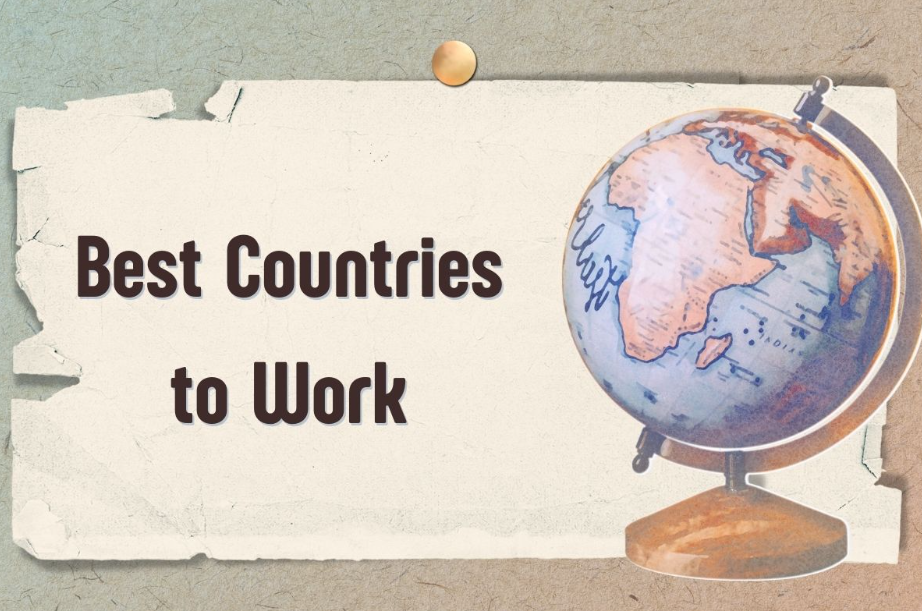
Best Countries to Work for Indian Students in 2024-2025
Love this blog share the love.

Get the best study abroad guidance
Start your journey with the best study abroad experts in India
- 2L+ Leap students sent abroad
- 2L+ students scored 7+ bands
Have Questions? Get Guidance to reach your Dream University
Connect with India's finest counsellors and biggest study abroad community.
Related Blogs

SOP for MBA in Finance: Work Experience & Sample
- August 12, 2024
- 13 min read
- 12 min read

MArch in Iceland for International Students
- 15 min read

Duolingo Accepted Universities in USA for 2024 Intake
- April 20, 2023
- 10 Min Read

How to Get Job in USA for Indians in 2024: Easy Job Search Hurdles!
- October 11, 2023
- 15 Min Read

Universities in USA Without Application Fee 2024 [Updated]
- September 7, 2023

Cost of Studying In UK For Indian Students In 2024: Fees and Salary
- October 10, 2023
- 14 Min Read

Fall/September Intake in UK 2024-2025: Timeline & Universities
- May 15, 2023

Oxford vs Harvard University: Which is better for Study abroad?
- August 6, 2024
Crack IELTS with
7+ bands in 4 weeks.
Get Guidance to reach your
Dream university.
- Offline MS(R) form
- Offline Ph.D form
- Non joining form
- Other student related forms
- Parent Login
- Checkmail Roundcube
- Checkmail Squirrelmail
- Internal Web
- Dual Degree
- Undergraduate
- Postgraduate
- Research Areas
- Transcripts / Degree / Verification
- Visiting Student & Professional Candidate
- List of Chairman of DRC/CRC
- List of Convenor of DRC/CRC
- Academic Circulars
- Board of Academic Programmes
- List of Dept./Centre/School
Academics Administration
- Associate Dean
- Deputy Registrar
- Assistant Registrar
Minimum Qualifications for admission to Full-time PhD Programmes
Table 1 defines the minimum qualifications required for admission to full-time Ph. D. programmes at IIT Delhi. Please note:
These are Institute minimum requirements and any Department/Centre/School operating through their DRC/CRC/SRC can specify higher short-listing criteria than what is specified here.
This table includes most of the degrees, but each DRC/CRC/SRC is free to specify the qualifications and disciplines acceptable for admission to their programmes.
Candidates in the final year of their programmes and who expect to complete all their qualifying degree requirements before the date of registration are also eligible to apply for admissions. For short-listing purposes, their performance until the preceding semester (preceding year if their programmes are year based) would be considered but their admission would be provisional, subject to their meeting the minimum eligibility criteria after their final qualifying examination results are announced. In any case, all admissions are provisional at first and it is confirmed only after all certificates and previous records are duly checked and verified, a process which may take a few weeks into the starting semester.
Table 1: Minimum Qualification for Admission to full-time PhD Programmes
| Qualifying Degree | Minimum performance in qualifying degree for General/OBC (Non-Creamy Layer) category students | Qualification through national level examination requirements |
|---|---|---|
| M.Tech./M.E./M.D. or equivalent | 60% marks or 6.00 CGPA on a 10-point scale | Nil |
| M.Sc./MBA/M.A./M.B.B.S. or equivalent | 60% marks or 6.00 CGPA on a 10-point scale | Qualified GATE/ CSIR/ UGC/NET/ICAR/ICMR/ DST-INSPIRE Fellowship |
| B.E./B.Tech. or equivalent | 70% marks or 7.00 CGPA on a 10-point scale | Qualified GATE/CSIR/ UGC NET/ICAR/DST-INSPIRE Fellowship |
Exemptions, relaxations and clarifications:
For SC/ST/PwD category candidates , the minimum performance in the qualifying degree (S. No. 1 & 2 in Table 1) is relaxed from 60% to 55% (CGPA relaxed from 6.00 to 5.50).
For SC/ST/PwD category candidates , the minimum performance in the qualifying degree (Sr. No.3 in Table 1) is relaxed from 70% to 65% (CGPA relaxed from 7.00 to 6.50).
Qualifying degree performance is computed by aggregating performance over all the semesters/years of the qualifying degree, as per the credit or weightage system approved in the institution/ board where the degree has been completed.
Requirement of qualification in GATE / National Exam is waived for the following categories of applicants:
Currently registered students in Centrally Funded Technical Institutes (CFTIs) pursuing B.Tech./B.E./ Integrated M. Tech/ Integrated M.Sc. Programmes (or any other programme of minimum four year duration, admission to which is on the basis of JEE), who have completed 6 semesters or more, and have CGPA of 8.00 or above (on a 10 point scale). Such students must obtain a CGPA of 8.00 or above at the time of graduation, and before they formally register for the Ph.D. programme (80% aggregate marks, if marks are the primary mode of evaluation);
Graduates of CFTIs (in the programmes marked under (i)) with a final graduation CGPA of more than 8.00 (80% aggregate marks, if marks are the primary mode of evaluation);
M.A or M.Sc. graduates from IITs with CGPA 8.00 or above.
For purposes of shortlisting, the primary method of evaluation (i.e., CGPA/CPI, or aggregate percentage, whichever is appropriate) followed by the institution where candidate has obtained his/her qualifying degree will be used by IIT Delhi for determining whether the candidate meets the final shortlisting requirements.
For assistantship purposes only (and not for qualification), candidates with M.B.B.S. qualification will be considered equivalent to M. Tech., for admission to Ph.D. programme in Centre for Biomedical Engineering;
For candidates with M.A. degree in English, a 5% relaxation in marks or 0.5 relaxation in CGPA may be permitted for admission to the Ph.D. programme in Humanities and Social Sciences;
Candidates holding an MBA degree are eligible for applying to the Ph.D. programme in the Department of Management Studies.
Select Language
Students related.
- CGPA Conversion Certificate
- Scholarships/Fellowships
- Travel Awards
- External Research & Travel Grant
- Inviting Online Applications
- Research Scholar Travel Award
- Research Excellence Travel Award
- Prime Ministers Research Fellowship Annual Research Grant
- 011-41219999 | 09999-127085
- whatsapp us
- counsellor / coach

- universities
- Administration Administration bachelor master
- Accounting & Finance Accounting & Finance bachelor master
- Agriculture Agriculture bachelor master
- Architechture Architechture bachelor master
- Arts Arts bachelor master
- Computer Science Computer Science bachelor master
- education education bachelor master
- Engineering Engineering bachelor master
- enviromental Science enviromental Science bachelor master
- health health bachelor master
- humanities humanities bachelor master
- journalism journalism bachelor master
- law law bachelor master
- life sci life sci bachelor master
- Manufacturing Manufacturing bachelor master
- Mathematics Mathematics bachelor master
- Others Others bachelor master
- personal services personal services bachelor master
- Physical Science Physical Science bachelor master
- social and behavioural science social and behavioural science bachelor master
- social nd behavioural science social nd behavioural science bachelor master
- social services social services bachelor master
- transport services transport services bachelor master
- veterinary veterinary bachelor master
- discussions
Direct PhD After BTech: Is It Possible?

Welcome to the new blog post of Admissify. Here we are going to solve the mystery of doing a PhD immediately after finishing your BTech. Many students get confused if this jump in education is possible or not. The good news is that it’s not just a myth! Many top universities worldwide have open doors for international students to join their direct PhD programs immediately after a bachelor’s degree in engineering or technology.
Now, let us probe into the core: eligibility requirements, application process and vital details for you to follow this ambitious academic path. If you are thinking about improving your qualifications or even pursuing a profession in research work, it is important to know your options. So prepare yourself with a tasty drink and get ready for an informative session as we guide you through all the necessary information on securing PhD after a BTech degree. Stay tuned for valuable insights that could potentially transform your career trajectory!
Table of Contents
Why study PhD after BTech?
Getting a PhD overseas soon after finishing B.Tech is tough but possible. Numerous universities, particularly those located abroad, have PhD programs that one can join after completing a bachelor’s degree in science-related subjects such as technology, engineering or math (STEM).
Let’s look at some reasons why you should consider pursuing a PhD after BTech:
- Advanced Knowledge & Research Expertise: Develop expertise in a particular area, doing original research and expanding the limits of understanding.
- Career in Research & Development: This path allows for roles such as research scientist, postdoctoral researcher, or professor at universities and research facilities.
- Improved Problem-Solving Skills: Enhance your critical thinking and problem-solving skills, which are beneficial in many professions.
- Innovation & Entrepreneurship: Leverage your research findings to launch your innovative business or product.
- Advantage in a Competitive Job Market: In any area that demands significant research, a PhD can give you an advantage.
- More Income: PhD holders generally earn more money compared to BTech graduates (differs based on field and job sector).
- Teaching and Mentoring: To choose a path in academia, instructing and guiding the coming groups of engineers and scientists.
- Global Career Opportunities: A PhD degree can bring about chances for international research partnerships and job possibilities all around the globe.
- Intellectual Growth and Personal Satisfaction: Discover new knowledge and make a substantial impact in your area of expertise.

Ways for Applying PhD after Btech
After your BTech, you have two main options for pursuing a PhD:
Direct Application: Numerous universities accept applications from BTech graduates for their PhD programs. Investigate the specific prerequisites and due dates for application into your chosen programs.
Faculty Recommendation: Consult professors from your BTech department who match with your research focus. Faculty suggestions are crucial for boosting PhD applications.
Here is a list of well-known countries where PhD students often go to study abroad, showing their average fee range, availability of PhD scholarships and top hiring entities.
- PhD in USA: A PhD from the USA provides chances for engaging research work with top groups and firms.
| Average Salary | USD 90,000 to 130,000 (INR 92L to 1 Cr) |
| Average Tuition Fees | USD 120,000 to 200,000 (INR 1Cr to 1.6 Cr) |
| Scholarships | -IBM PhD Fellowship Awards program -Campbell Fellowships for Transformative Research |
| Top Recruiters | -Boeing -Pfizer -Lockheed Martin |
- PhD in Canada: The strong requirement of skilled workers in STEM areas from Indian students matches well with the educational field of many BTech graduates. It provides them a good opportunity to get work related to their knowledge and abilities.
| Average Salary | CAD 45,000 to 90,000 (INR 27L to 54L) |
| Average Tuition Fees | CAD 10,000 to 30,000 (INR 6L to 18L) |
| Scholarships | -Vanier Canada Graduate Scholarships -Ontario Graduate Scholarship |
| Top Recruiters | -Apotex -National Research Council of Canada -Canadian Institute for Advanced Research |
- PhD in Germany: German universities highlight their expertise in STEM areas, social sciences, humanities and languages. A PhD from a German university provides you with useful knowledge and good career possibilities.
| Average Salary | EURO 70,000 to 100,000 (INR 62L to 89L) |
| Average Tuition Fees | EURO 8000 to 10,000 (INR 7L to 9L) |
| Scholarships | -Deutschland Scholarship -The German Academic Exchange Service (DAAD) |
| Top Recruiters | -BMW -Bosch -Volkswagen |
| Average Salary | GBP 80,000 to 90,000 (INR 83L to 93L) |
| Average Tuition Fees | GBP 19,000 to 35,000 (INR 19L to 36L) |
| Scholarships in the UK for PhD | -Chevening Scholarships -Royal Society Newton International Fellowships |
| Top Recruiters | -Rolls -Royce -ARM Holdings -AstraZeneca |
- PhD in the UK: Doing a PhD in the United Kingdom offers great study and research chances, plus it prepares you with essential abilities for your coming profession.
Before sending applications, explore certain university programs that match your research interests. This is only an initial point – numerous other countries give superior PhD courses post BTech degrees.
In the end, consider all choices and select what aligns with your academic ambitions and research aspirations.
Preparing your Profile
A direct PhD after BTech requires a strong profile. Here are some tips to build your profile:
- Research: Before applying, it is important to conduct research on the universities that provide direct PhD programs in your chosen field. You should search for universities having good research programs and faculty members doing research work matching with your interests.
- GPA: For getting into a PhD program, it is very important to have good GPA. Keep your GPA high in BTech to increase chances of being accepted.
- Experience that Relates: You can improve your profile by having experience in research or internships within the field you are interested in. Try to get experience related to your area of interest while studying BTech.
- Letters of Recommendation: Powerful letters of recommendation from professors or employers who can confirm your academic and research ability. It would be beneficial to include these in your application.
- Publications: Papers or other works of publication can be added in your application for highlighting the potential you have in research.
How to apply
This is what you can do if, after finishing Btech, you want to apply for a PhD:
- Choose Your Path: Decide between applying to PhD programs directly or asking for a faculty recommendation for a better application.
- Research Programs: Find out which universities and programs match your research interests. Check university websites for details about faculty members and their areas of research.
- Ensure Eligibility: Every program has its own set of qualifications. Look for information about prerequisites, required documents and standardized test scores (GRE, GMAT etc.). Also check the minimum GPA needed.
- Develop a Solid SOP (Statement of Purpose): This is the moment where you can present your research interests, useful abilities and professional objectives. Emphasize on BTech projects and any experience in research.
- Secure Letters of Recommendation (LORs): Ask for LORs from professors who know about your academic work and possibility in research. If you are looking for a recommendation from faculty, focus on professors whose research matches with yours.
- Standardised Tests: GRE or GMAT scores are often needed in countless programs. Make sure to take these tests early enough so they match the time limit for submitting your application.
- Prepare Additional Papers: Prepare the necessary papers such as transcripts, resume/CV, research plan and English language skills proof (TOEFL/IELTS) based on your program’s requirements.
- Application Deadlines: Be mindful of application deadlines and submit all materials well in advance.
- Contact Potential Supervisors (Optional): If there is a particular professor whose research matches yours, you might want to reach out and let them know about your interest. You can also ask if there are any PhD positions available in their group.
Additional Tips:
- Network: Go to conferences and meet researchers in your area. They may know of PhD chances for you.
- Financial Aid: Explore scholarships and funding opportunities to help finance your PhD studies.
- Prepare for the Interview: If you make it to the shortlist, then before preparing for potential PhD program interviews, do research on both the program and faculty members.
Do not forget, getting enrolled in a PhD program after Btech is not easy and can be very competitive. Therefore, you must do good research and submit your application with care.
Eligibility to Apply
Here are the eligibility criteria for applying for a PhD after BTech:
- Bachelor’s Degree: The minimum requirement is a BTech degree in a relevant field.
- Strong Academic Performance: A high GPA (3.5+) in your BTech program shows that you have the academic skills to deal with the demands of a PhD.
- Standardized Test Scores: GRE or GMAT scores are necessary for numerous programs. Look into the requirements of each program to understand the score expectations.
- Research Experience (Optional, but Helpful): Research experience shows your ability in research and boosts your application. It could be about BTech projects, internships or publications.
- English Language Proficiency: International students often have to show their English language skills by submitting TOEFL (89) or IELTS (7.0) scores, only if the program asks for them.
Additional Eligibility Considerations
- Some programs might have specific course requirements within your BTech degree.
- A few universities might have minimum CGPA cut-offs for applying.
- Research interests aligning with faculty expertise at the chosen university can be advantageous.
Documents Required
When applying for a PhD after BTech, some specific documents may be required, including:
- Academic Transcripts: Official transcripts from your BTech program (and any previous degrees, if applicable).
- Standardised Test Scores: GRE, GMAT, or other tests the program requires (check program specifics).
- Curriculum Vitae (CV) or Resume: A paper that lists details about your education, experience in research, abilities and accomplishments.
- Purpose Statement (SOP): An important essay where you detail your research interests, career aims, and motivations for undertaking a PhD in the particular program.
- Letters of Recommendation (LORs): You should request two or three letters from professors who are knowledgeable about your academic achievements and potential in research.
- English Language Proficiency Test Scores: Your TOEFL or IELTS scores (if English is not your first language, depending on the program).
- Research Proposal (Optional): You might be asked to provide a research proposal that explains the specific study area and methodology you plan to use for your research.
- More Documents: You could require different additional documents, such as proof of funding, passport copies or other application-related papers based on the program.
Always keep in mind:
- Submit original copies of all documents.
- Translate documents into English if necessary (check program requirements).
- Meet all deadlines for submitting documents.
Universities offering PhD after BTech.
Universities that are highly ranked around the world have PhD programs that are made especially for students like you. In these schools, there is excellent faculty, modern research places and an active academic setting.
Now, we will examine a few universities that are highly regarded in the USA, UK, Canada and Germany. These institutions have been arranged according to the QS Ranking 2024 and their usual yearly charges.
| MIT (#1 ) | USA | USD 30,000 (INR 25L) |
| Stanford University (#5) | USA | USD 57,000 (INR 47L) |
| University of Cambridge (#2) | UK | GBP 30,000 (INR 31L) |
| University of Oxford (#3) | UK | GBP 17,000- 35,000 (INR 17L to 31L) |
| California Institute of Technology (#15) | USA | USD 63,000 (INR 51L) |
| University of Toronto (#21) | Canada | CAD 30,000 (INR 18L) |
| Columbia University (#23) | USA | USD 52,000 (INR 43L) |
| University of British Columbia (#34) | Canada | CAD 20,000 (INR 12L) |
| Technical University of Munich (#37) | Germany | Euro 8000-12,000 (INR 7L to 12L) |
| McGill University (#300) | Canada | CAD 32,000 (INR 19L) |
| University of Sussex (#218) | UK | GBP 23,000 (INR 23L) |
| Freie Universität Berlin | Germany | Euro 8000 (INR 7L) |
List of PhD Courses after BTech
Once you finish BTech, there are numerous courses that you can select and they have high demand. We offer a list to begin your study but keep in mind the availability of certain PhD programs might vary across universities.
Here is a list of PhD courses you can pursue after your BTech degree:
- PhD in Civil Engineering
- PhD in Chemical Engineering
- PhD in Computer Engineering
- PhD in Electrical Engineering
- PhD in Mechanical Engineering
- PhD in Industrial Engineering
- PhD in Physics
- PhD in Chemistry
- PhD in Mathematics
- PhD in Business Administration (PhD in Business Administration)
- PhD in Economics (PhD in Economics)
- PhD in Public Policy (PhD in Public Policy)
Jobs Opportunities
A PhD after BTech can lead to many interesting career options. Some possibilities are:
| Professor | $114,000 (INR 95L) |
| Data Scientist | $154,000 (INR 1.2 Cr) |
| Engineering Consultant | $120,000 (INR 1 Cr.) |
| Associate Professor | $104,000 (INR 86L) |
| Government Researcher | $118,000 (INR 98L) |
| Scientist | $92,000 (INR 76L) |
| Postdoctoral Researcher | $183,104 (INR 1.5 Cr) |
Chasing a PhD after BTech is not for everyone, but it can be very fulfilling to those who have an obvious research or career aim. Several overseas universities propose direct PhD programs to students from other countries in STEM areas and various other disciplines.
A direct application means the student sends in their application without any involvement from faculty and an indirect way requires them to get a recommendation from a faculty member. It is important for students to do careful research before applying, making sure they meet all eligibility requirements and prepare a strong application with all necessary documents.
After finishing a PhD, graduates might choose from many thrilling career routes and potentially earn much increased salaries. The blog furnishes information to assist pupils in making an educated choice regarding following up BTech with PhD, and guide them on how they can accomplish their academic as well as research ambitions.
Admissify, we are committed to supporting international students in every aspect of their education. We offer a wide range of guidance and help services that cover all areas from applying for courses to getting visas.
What is the eligibility requirement to study PhD after BTech?
Conditions for pursuing a PhD after BTech are different, and it depends on the university or program. In general, you require good academic performance, appropriate investigation experience, clear research suggestion and capacity to fulfill any extra conditions determined by the university or department.
Is PhD after BTech expensive?
The expense to continue and get a PhD after BTech can differ based on the country, university and particular program. Frequently, universities provide funding chances like scholarships, assistantships or research grants for backing up PhD learners. The average range of PhD ranges from INR 80L to 1 Cr.
How can I prepare for my PhD after BTech?
For getting ready to enroll into a PhD after BTech, you ought to first come up with your research preferences, find potential supervisors and concentrate on crafting a solid research plan. Also, emphasize on constructing robust academic and exploration groundwork while preparing for any essential standardized tests or language aptitude evaluations.
Is it possible to do a direct PhD after BTech in Germany?
Yes, there are universities in Germany that provide direct PhD programs for students who have a BTech degree. You need to fulfill the conditions of eligibility and language proficiency, as well as locate a supervisor for your research work

Avneet Kaur is a dedicated writer with a profound commitment to enhancing education across the globe. Through her insightful blogs and articles, she aims to help students achieve their goals by exploring all aspects of learning and introducing new approaches to education. In addition to her focus on education, Avneet has a keen interest in digital media, continually exploring its potential alongside her writing and academic pursuits. Her diverse experiences and innovative ideas are making a significant impact on the way education is perceived and delivered worldwide.

Related Articles

Best Courses in Canada for Indian students

MBA in UK Without Work Experience for Indian Students

MBA in Canada Without Work Experience For Indian Students
Comments are closed.
How To Get Into MIT From India: Admission & Fees For Indian Students
Sat preparation tips 2024: how to prepare for sat exam, get a chance to study abroad with upto 100% scholarship.
- New Zealand
- United States
- South Africa

- Student Visa
- Visitor Visa
- Investor Visa
- Dependent Visa
- Business Visa
- British Columbia
- UK Innovator Visa
- Latest Events
- Online Payment
Quick Enquiry

NAVIGATING THE PATH TO A PHD AFTER BTECH: A COMPREHENSIVE GUIDE
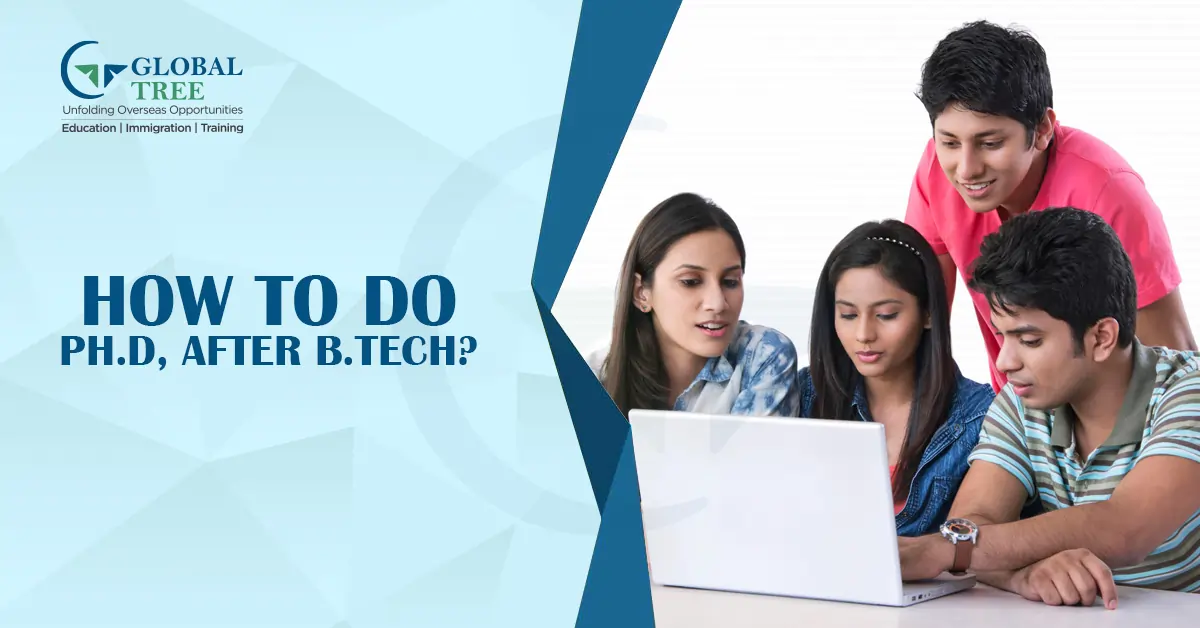
Introduction
How to do a phd after btech, how to build a profile for a direct phd after btech, list of phd courses after btech abroad:, universities offering phd courses abroad:, eligibility for a phd program after btech, how to apply for phd abroad, jobs and salary after phd abroad, exploring career trajectories after a phd, challenges and rewards of pursuing a phd after btech.
Embarking on the journey from a Bachelor's in Technology (BTech) to a Doctorate in Philosophy (PhD) is an ambitious yet fulfilling endeavor. This comprehensive guide aims to provide an in-depth exploration of the process of pursuing a PhD after BTech. From choosing a specialization to building a robust profile, navigating through PhD courses, understanding eligibility criteria, compiling essential documents, applying from India to universities abroad, and exploring potential career trajectories, this guide will equip you with the knowledge needed to embark on this academic pursuit.
1. Integrated PhD Programs - Integrated PhD programs provide a seamless transition from BTech to a combined MS and PhD course. These programs, spanning 3-6 years, are designed for those with a clear vision of their research interests. Universities such as MIT and Stanford offer cutting-edge integrated programs, allowing students to delve deep into their chosen fields.
2. Direct PhD Application - Directly applying for a PhD after BTech is another viable path . Seek recommendations from faculty members or supervisors who can vouch for your academic prowess and research potential. It is essential to demonstrate a thorough understanding of your chosen field, backed by research papers or publications. Aligning your BTech final year project with your intended PhD research topic strengthens your application.
3. Letters Of Recommendation and SOP - Crafting a compelling application involves securing strong Letters Of Recommendation (LORs) and a well-articulated Statement Of Purpose (SOP). LORs should reflect your academic and research capabilities, while the SOP should delineate your research interests, career goals, and why you are an ideal candidate for the Ph.D. program.
1. Work Experience - Gaining work experience post-BTech enhances your application. Working under your project guide or opting for an internship provides practical exposure, making you a more attractive candidate. It also showcases your commitment to applying theoretical knowledge in real-world scenarios.
2. Research Experience - Active participation in seminars, submission of research papers, or engagement in additional research projects during your BTech significantly boosts your profile. Aligning your final year project with your intended PhD topic not only demonstrates continuity but also shows a focused approach to your research interests.
3. Double or Triple Majors - Pursuing Double or Triple Majors during your undergraduate program adds significant weight to your application. For instance, if your majors are in Finance and Mathematics, and you wish to pursue a PhD in Finance, this multidisciplinary background becomes a valuable asset.
4. Maintain Good Relations - Cultivate strong relationships with mentors or guides. Maintaining a good rapport with these individuals ensures compelling LORs, as their recommendations carry weight in the admissions process.
An extensive array of PhD courses is available after completing BTech. The list includes specialized fields such as:
- PhD in Artificial Intelligence - Exploring Artificial intelligence, machine learning , and data science at institutions like MIT and Stanford.
- PhD in Civil Engineering - Advancing studies in structural, transportation, and environmental engineering, with programs at the University of Illinois, Chicago.
- PhD in Computer Engineering - Delving into computer systems, networks, and software development, with programs at MIT and Stanford.
- PhD in Electrical Engineering - Specializing in electrical systems, electronics, and communication, with programs at Columbia University.
- PhD in Engineering - A broad program covering various engineering disciplines, with global leaders like the University of Manchester.
- PhD in Fluid Mechanics, Turbomachinery, and Energy Fluid Focusing on fluid dynamics, turbomachinery, and energy fluid research, with programs at MIT and Stanford.
- PhD in Graphene Technology - Exploring the applications of graphene in technology and materials science, with programs at the University of Manchester.
- PhD in Information Engineering -Specializing in information theory, communication systems, and signal processing, with programs at MIT and Stanford.
- PhD in Management and Manufacturing - Combining engineering with management principles, with programs at the University of Sussex.
- PhD in Material, Mechanics, and Design - Exploring materials science, mechanics, and design, with programs at MIT and the University of Manchester.
- PhD in Mechanical Engineering - Delving into mechanical systems, robotics, and thermodynamics, with programs at Stanford and MIT.
- PhD in Robotics Engineering - Exploring robotics, AI, and automation, with programs at MIT and Stanford.
Prominent universities abroad offering PhD programs are as follows, along with their QS Ranking 2023 and average annual tuition fees in INR:
| University | Country | QS Ranking 2023 | Average Annual Tuition Fees (INR) |
|---|---|---|---|
| MIT | USA | 1 | 43,60,000 |
| Stanford University | USA | 3 | 35,20,000 |
| Columbia University | USA | 22 | 42,90,000 |
| University of Illinois, Chicago | USA | 317 | 19,30,000 |
| University of Manchester | UK | 28 | 23,00,000 |
| University of Sussex | UK | 240 | 18,70,000 |
| ETH Zurich - Swiss Federal Institute of Technology | Switzerland | 6 | 24,70,000 |
| National University of Singapore | Singapore | 11 | 21,50,000 |
| University of Tokyo | Japan | 22 | 15,00,000 |
| Australian National University | Australia | 31 | 19,80,000 |
(Read More: PTE vs. IELTS vs. TOEFL: which one should you consider? )
Eligibility criteria for a PhD program after BTech can vary, but certain common requirements include:
- Proficiency in Engineering Fundamentals - Demonstrated proficiency in core engineering subjects such as calculus and algebra.
- Language Proficiency - Good English proficiency test scores (IELTS/PTE/TOEFL) are often required.
- Strong Letters Of Recommendation (LORs )- Convincing LORs from academic or professional sources are crucial.
- Well-Crafted Statement Of Purpose (SOP)- An articulate SOP explaining your academic journey, research interests, and career aspirations.
- Good GMAT/GRE Scores - Achieving competitive scores in standardized tests like GMAT or GRE.
- Research Proposal - Providing a detailed research proposal showcasing your interests in research.
- Preferable Double/Triple Majors - Having Double or Triple Majors can be an additional advantage.
- Documents Required for A PhD After BTech - When applying for a PhD directly after BTech, a comprehensive set of documents is required:
- Score sheets of GRE/GMAT, IELTS/PTE/TOEFL- Proof of your standardized test scores.
- Statement Of Purpose (SOP)- A well-crafted SOP explaining your academic journey, research interests, and career aspirations.
- Letters Of Recommendation (LORs)- Strong LORs from mentors or guides.
- Research Proposal- A detailed research proposal specifying your intended research focus.
- Proof of Funds- Evidence of financial capability to support your studies.
The application process for a PhD abroad from India involves meticulous steps:
- Research the PhD courses available - Thoroughly explore available PhD programs and identify your field of interest.
- Finalize the area you want to specialize in - Narrow down your research focus and identify potential supervisors.
- Choose the topic you want to do your research in - Define your research topic and ensure alignment with your chosen university's expertise.
- Search for the best supervisor to guide you - Identify a supervisor whose research aligns with your interests.
- Send a formal application letter to your supervisor - Reach out to your potential supervisor with a well-crafted application letter.
- Follow up regularly through email or call - Maintain regular communication to express your keen interest and inquire about the application process.
- Fill out the application form - Complete the application form accurately and thoroughly.
- Submit all required documents- Ensure all necessary documents, including transcripts and test scores, are submitted.
(Read More: How to study for long hours without getting distracted? )
Contrary to common misconceptions, a PhD opens diverse career paths. Potential job roles and their average annual salaries in INR include:
| Position | Average Annual Salary (INR) |
|---|---|
| Associate Professor | 80,09,455 |
| Lecturer | 1,08,16,893 |
| Professor | 1,17,25,181 |
| Data Scientist | 1,27,98,614 |
| Research Scientist | 1,24,68,327 |
| Life Science Researcher | 1,29,63,757 |
| Biomedical Scientist | 1,69,27,199 |
1. Academia - The traditional path involves becoming a professor, lecturer, or researcher at academic institutions.
2. Industry - Industries, especially in technology and research-driven sectors, value PhD holders for their expertise. Roles can include data scientists , research scientists, and innovation leaders.
3. Government Research Institutes - Opportunities exist in government research organizations, contributing to national research initiatives.
4. Consultancy - Offering specialized consulting services in your field of expertise.
5. Entrepreneurshi p- Starting your own venture based on your research findings or technological innovations.
6. International Organizations - Joining international organizations such as the United Nations or World Health Organization in research or advisory roles.
- Intense Workload : The workload in a PhD program is demanding, requiring time management and resilience.
- Financial Investment : Pursuing a PhD involves a significant financial investment, including tuition fees and living expenses.
- Length of the Program: PhD programs are lengthy, typically spanning several years, requiring a long-term commitment.
- Expertise and Specialization : Attain in-depth knowledge and expertise in your chosen field of study.
- Research Contribution : Contribute valuable research to your field, potentially impacting global knowledge.
- Career Opportunities : Open doors to diverse and high-paying career opportunities in academia, industry, and research.
- Personal Growth : Experience personal and intellectual growth through the challenges of doctoral research.
1. Can I pursue a PhD directly after completing my BTech?
A: Yes, it is possible to pursue a PhD directly after completing BTech. You can either opt for integrated programs that combine MS and PhD studies or apply for a PhD program directly. Having a strong academic background, research experience, and alignment with your intended PhD topic enhances your chances of admission.
2. What steps can I take to build a strong profile for a direct PhD after BTech?
A: Building a robust profile involves gaining work experience, participating in research projects, and aligning your final year project with your intended PhD topic. Consider pursuing Double or Triple Majors, maintaining good relationships with mentors for strong Letters Of Recommendation, and crafting a compelling Statement Of Purpose (SOP).
3. What are some popular PhD courses available after BTech?
A: There are diverse PhD courses available after BTech, ranging from Artificial Intelligence and Civil Engineering to Robotics Engineering and Material Science. The choice of course depends on your interests and career goals. Top universities globally offer these programs, providing a rich academic experience.
4. What documents are required when applying for a PhD after BTech?
A: When applying for a PhD after BTech, you typically need documents such as score sheets of standardized tests (GRE/GMAT, IELTS/PTE/TOEFL), a well-crafted Statement Of Purpose (SOP), strong Letters Of Recommendation (LORs), a detailed research proposal, and proof of funds to support your studies.
5. What are the potential career trajectories and salaries after completing a PhD abroad?
A: A PhD opens diverse career paths, including academia, industry, government research, consultancy, entrepreneurship, and international organizations. Salaries vary based on the role and location. For example, positions such as Associate Professor, Data Scientist, or Research Scientist can offer competitive annual salaries, providing a rewarding return on your academic investment.
Embarking on a PhD after BTech is a challenging yet immensely rewarding endeavor. This comprehensive guide has explored every facet of the journey, from the initial decision to pursue a PhD, the meticulous preparation, the selection of courses and universities, the application process, and potential career paths. It is a transformative experience that goes beyond academic achievement, offering opportunities for personal and professional growth. The challenges are significant, but the rewards, both intellectually and professionally, make the pursuit of a PhD after BTech a truly enriching and worthwhile journey.
Most asked questions on Google
Why is an international higher education better than studying at a domestic university.
The common notion is that foreign universities are expensive, although with scholarships this is an exaggerated issue. What many fail to consider are time and effort. Studying in an Indian college leads to a lower average salary than earned by our western counterparts. This salary sets the tone for all future promotions since companies often look at your previous salaries during compensation appraisals. Additionally, most senior positions tend to be scooped up by individuals who have an international outlook through global exposure. Finally, studying in a foreign country is an incredible learning experience helping students get a better academic as well as soft skill development.
Why has Canada become such a popular destination for education?
Canada has been one of the market leaders in education for decades. However, what currently sets Maple Country apart is immigration. Canada is wholeheartedly inviting students to study in their universities to fill job vacancies that are always growing in the country. Students who study in Canada (especially a Master’s Degree) are practically assured of a Permanent Residency Visa.
Is a good entrance test score important for a scholarship?
A good score doesn’t automatically qualify a candidate for a scholarship, however, it is one of the primary factors that the admissions department looks for in a scholarship application. There are other attributes such as a candidate’s academics, extra-curricular, financial background, and application essays (SOPs).
How do I choose the right university for me?
We get this question a lot. Many candidates know which career path they want to take, but are at a loss for how to take that journey. Understanding the job role and the industry that you want to get into is the first step to picking the right university.
Where should i study abroad?
Carefully consider the immigration options of the country that the university that you are considering is in. This is more important when you intend to stay back in the country after the completion of your course.
Also, review the placement history of the university as well.
The first step is to list your preferences. By listing your preferences and strengths, describe your course of preference. Extensive research on the modules, software and its length for your preferred subject is necessary.
Recent Posts


How to Find Housing in Canada before Arrive?

A Checklist of Everything You Should Do in Your First Week in Canada

How to Buy Insurance in Canada: A Detailed Guide for International Students

Study MBA in Singapore for Indian Students
Reach our study abroad & immigration experts.
Get a FREE consultation & profile assessment at nearest branch now!
Get Consultation
Submit the form.
Our Team will reach you!
SPEAK TO THE EXPERTS
Global Tree Team Will Reach You!
- Top Colleges
- Top Courses
- Entrance Exams
- Admission 2024
- Study Abroad
- Study in Canada
- Study in UK
- Study in USA
- Study in Australia
- Study in Germany
- IELTS Material
- Scholarships
- Sarkari Exam
- Visual Stories
- College Compare
- Write a review
- Login/ Register
- Login / Register
PhD after B.Tech
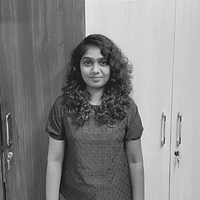
Keerthana R ,
Mar 4, 2024
Share it on:
Many students are wondering whether you can do a PhD after B.Tech or not. This article is written to help you answer that question as we have told you how to do it as well.
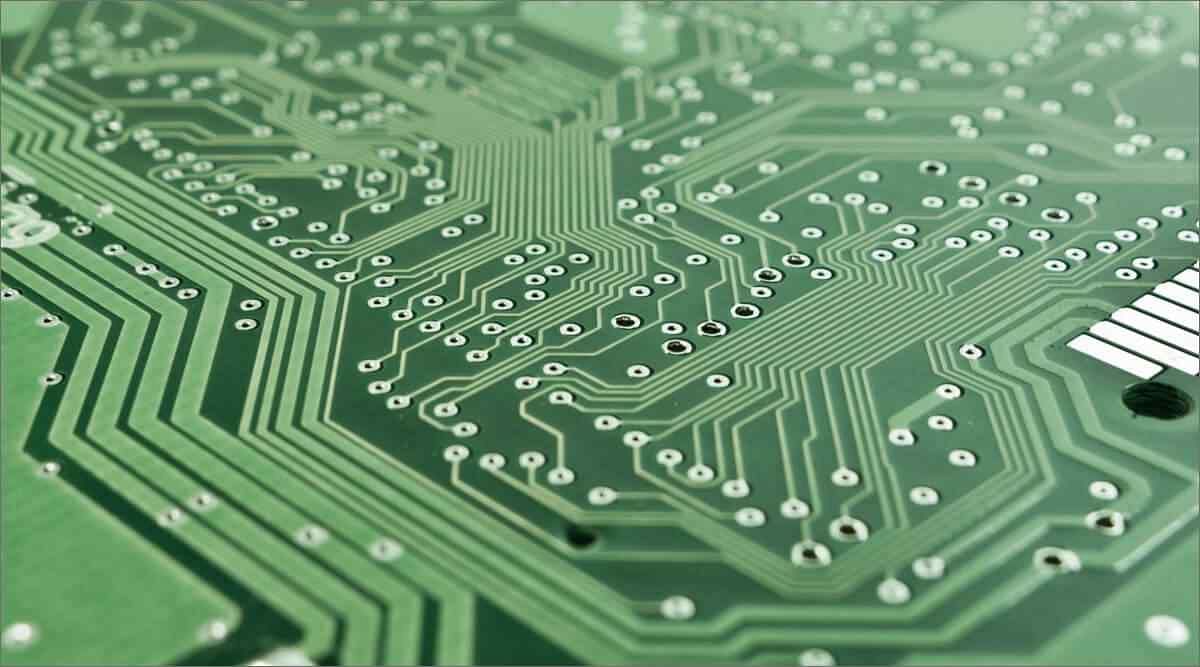
The most significant advantage of doing a Ph.D. right now after you complete B.Tech is that you get a chance to study with highly competitive students. Most of the students are worried about one thing, and that is just the amount of Ph.D. pressure and research aptitude you need right after B.Tech completes. But experts say that this will not be an issue.
There is no clarity on what is the Ph.D. eligibility as it differs with every institute. If you have future research plans and are thinking about it, then doing a Ph.D. after B.Tech or B.E. would be a great plan as this idea is indeed possible ! In this article, we will be talking about Ph.D. after B.Tech and if it is possible or not and if it is indeed possible to do it, how can one do it? So read more to find out the answer.
Table of Contents
Why Ph.D. After B.Tech?
Ph.d. after b.tech: how to apply, how to do ph.d. after b.tech.
- Specializations
Documents Prerequisites
- Important Points
- Universities
It is known that the Master’s program can get very expensive. Usually, students interested in a research program enroll for the same, i.e., a Master’s program, later converting it to a Ph.D. But a direct admission to any of the well-known Ph.D. courses after a Bachelor’s degree is also an option, as a student can do it, provided when they work hard. There are specific criteria that the applicant needs to meet. Hence, you need to check for each university to apply for a Direct Ph.D. admission after a Bachelor’s, i.e., a B.Tech or a B.E program.
For directly joining Ph.D. after B.Tech, you have to follow the below mentioned steps:
- First you have to crack the GATE examination.
- Your B.Tech CGPA must be at least 8.0 out of 10.
- You must have a good “SOP” (Study of Purpose) and a good “SOR”(Statement of Research).
- Then you need to prepare for the interview calls of various Institutes like IITs, IISC and others
- After clearing the interview, you can join your dream University as a direct PhD student.
Whenever you try building a profile for a Ph.D. application, having a Master’s is the key. In most current scenarios, work experience in the field of interest for at least a year or two is good. The student can carry out whatever research work they require in the relevant area while doing their Bachelor’s program.
- Students can also learn how to work under their guides after graduation to show different experiences in research.
- A paper publication that is otherwise called a technical paper presentation is in the form of seminars and other projects during your Bachelor’s program that you need to do, reflecting your aptitude and interest in research.
- The final year project topic given to you at the end of the day can be selected as per your future research target.
- There is also a particular concept of Majors and Minors that students do not know about.
- It is better to choose your majors to try to make your profile stronger for a direct Ph.D. application.
- Care should be taken to ensure that the coursework is covered in proper time and that the Bachelor’s program is equivalent to the corresponding program in the US.
Ph.D. Entrance Exams
There is usually an entrance exam, whether you go for a Ph.D. from IIT, IIM, or any other higher education institution, to qualify for a Ph.D. Here's a breakdown of some of the top Ph.D. entrance exams that you should be familiar with:
- UGC Net Exam
- CSIR-UGC NET exam
- ARC Ph.D. Admission Test
- DU Ph.D. Entrance Exam
- IGNOU Ph.D. Entrance Exam
Ph.D. Specializations after B.Tech
Suppose you are currently prominent in the field of Mathematics and Finance. In that case, your chances of getting an admit for a Ph.D. in Quantitative Finance, which is otherwise called only Finance, can get better. Some of the Ph.D. specializations after B.Tech are:
- Ph.D. in Engineering
- Ph.D. in Electrical Engineering
- Ph.D. in Civil Engineering
- Ph.D. in Fluid mechanics, Turbomachinery and Energy Fluid
- Material, Mechanics, and Design
- Ph.D. in Information Engineering
- Ph.D. in Management and Manufacturing
- Ph.D. in Graphene Technology
- Ph.D. in Mechanical Engineering
- Ph.D. in Robotics Engineering
- Ph.D. in Artificial Intelligence
- Ph.D. in Computer Engineering
Apart from all of the points mentioned above in the paragraph, the essential factors you need to take care of while backing a profile are the documents you need to have that go along with your application.
- A Statement of Purpose (SOP) might be required, and it must be well written. It should describe why you want to make it and your reason behind pursuing a Ph.D. and stuff like your area of interest, application, and contribution of the research you wish to carry out, how you see yourself progressing with the research work, etc.
- An SOP can either make or break the deal for you. Your caliber and aptitude need to be exemplary in the SOP that you write.
- The next set of essential documents that you need to have is Letters of Recommendation from professors. These should come from your guides or your mentors from your university. Your equation and the work that you do with the focus matter a lot here. Hence maintaining a healthy rapport with staff and the hard work you need to do are a must.
Therefore, applying for a Ph.D. after a Bachelor’s program without ever needing to do a Master’s program is entirely possible. It involves a lot of hard work from your side over 3 to 4 years of Undergraduate life, but it works in your favor at the end of the day.
Important Points on Ph.D. After B.Tech
The following points listed below give you a summary of the topics listed above. We have listed them out in such a way that it looks like a list of the essential points to note about the topic Ph.D. after B.Tech:
- You can carry out any research work in a relevant area even though you are doing a Bachelor’s.
- Get lots of knowledge on publishing papers, writing technical paper presentations, and working on different projects. This will showcase your talent as well as your research interest.
- Get strong Letters of Recommendation from your professors in college, as it is essential to have a LOR in hand with you.
- A well-written statement of purpose will always be an added advantage to you if you have an SOP.
- Doing double or Triple Majors in any relevant kind of field related to that of research.
- Get good GRE scores and TOEFL scores or even IELTS scores, as they matter a lot.
- Make sure that your academic background is placed well as it plays a crucial role later on.
- Put in lots of long study hours so that you can achieve your target.
Universities Offering Ph.D. Programs in India
Listed below are the popular universities in India from where you can pursue Ph.D. directly after B.Tech:
- IIT Guwahati
- IIT Hyderabad
- IIT Kharagpur
- BITS Pilani
- Chandigarh University, Mohali
- Lovely Professional University, Jalandhar
- Lingaya’s Vidyapeeth, Faridabad
- Hindustan Institute of Technology and Science, Chennai
- Awadhesh Pratap Singh University, Rewa
POST YOUR COMMENT
Related articles.
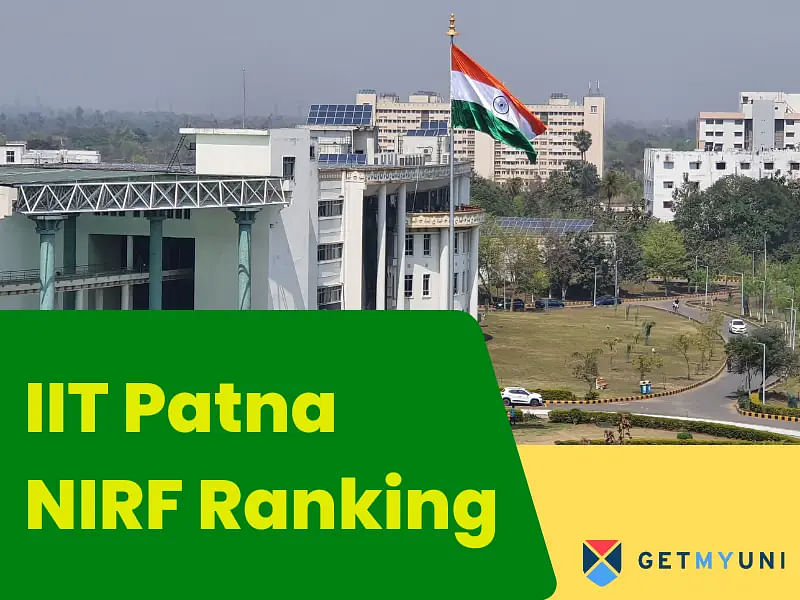
IIT Patna NIRF Ranking 2024 - Check Category Wise Rankings
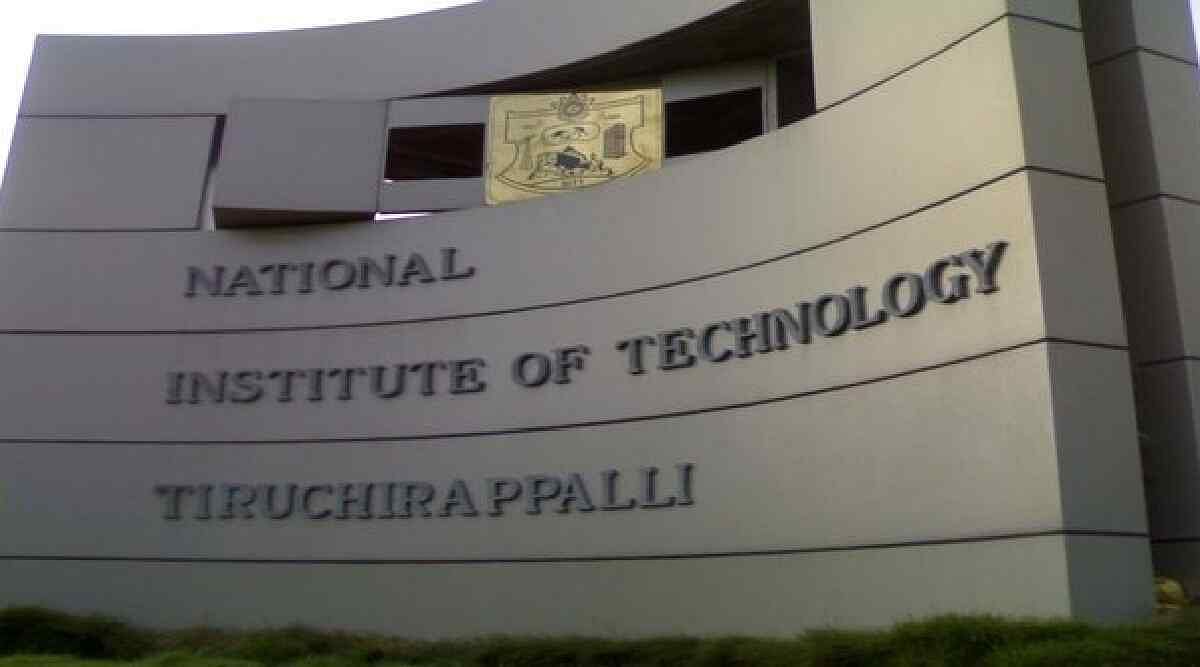
Best NITs Colleges in India 2024: Based on NIRF Ranking
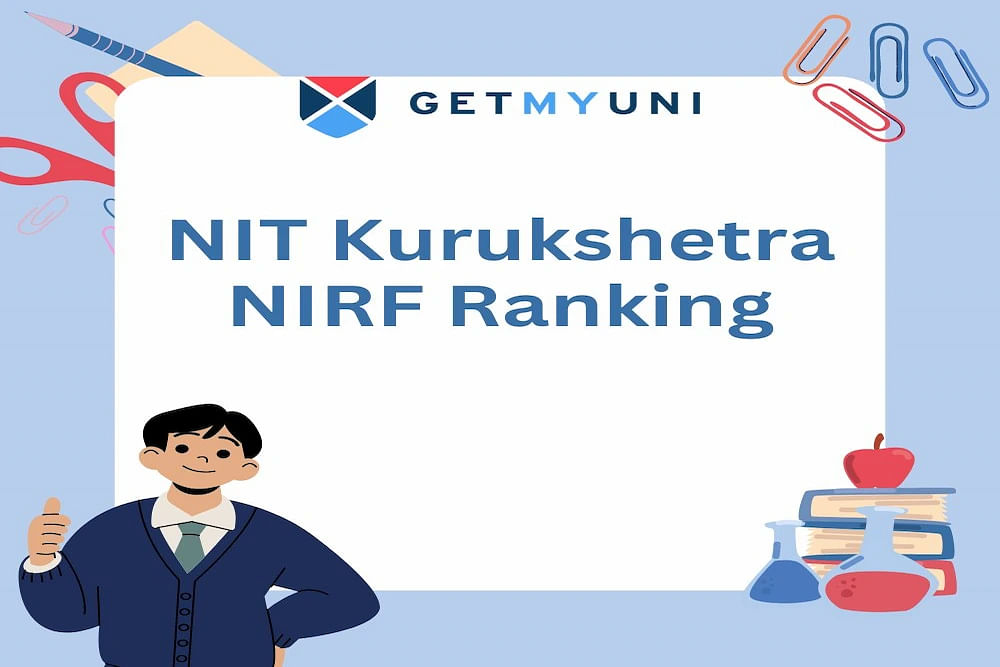
NIT Kurukshetra NIRF Ranking 2024 - Check Category Wise Rankings
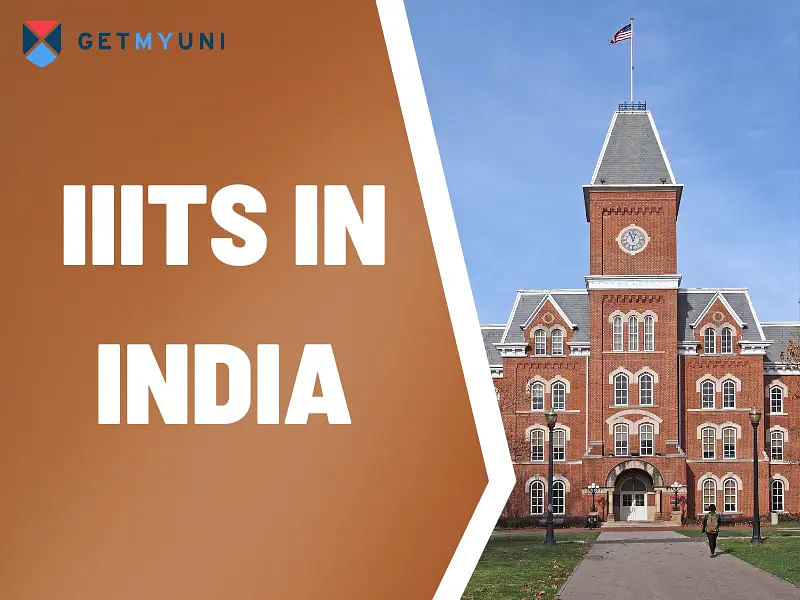
List of IIITs in India 2024: NIRF Ranking, Courses, Admission
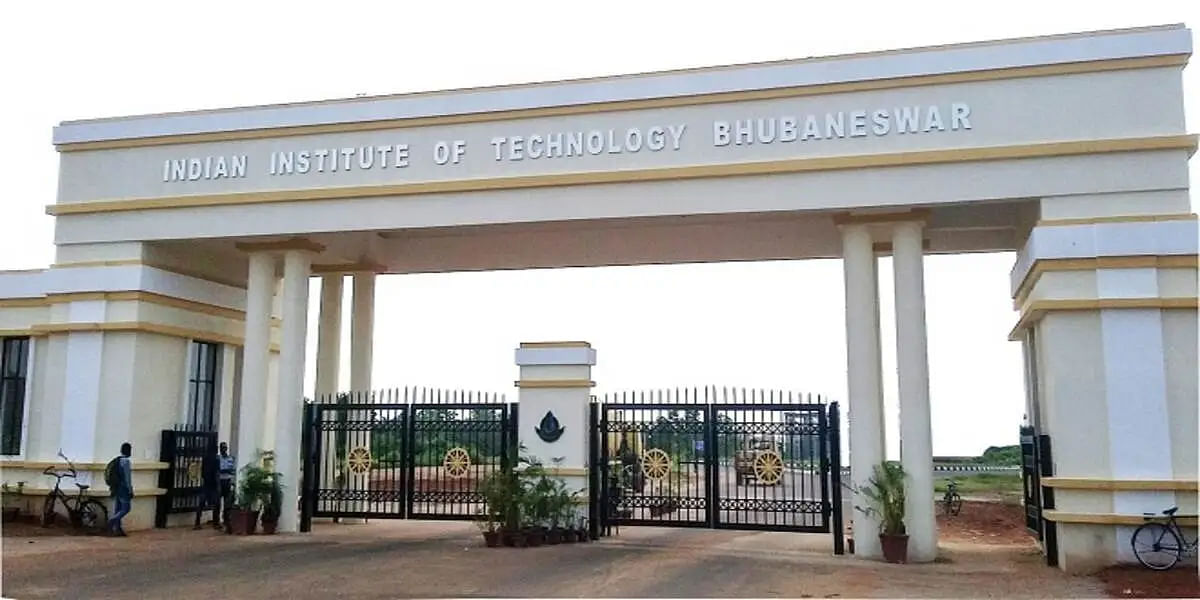
IIT Bhubaneswar NIRF Ranking 2024: Other Rankings, Courses
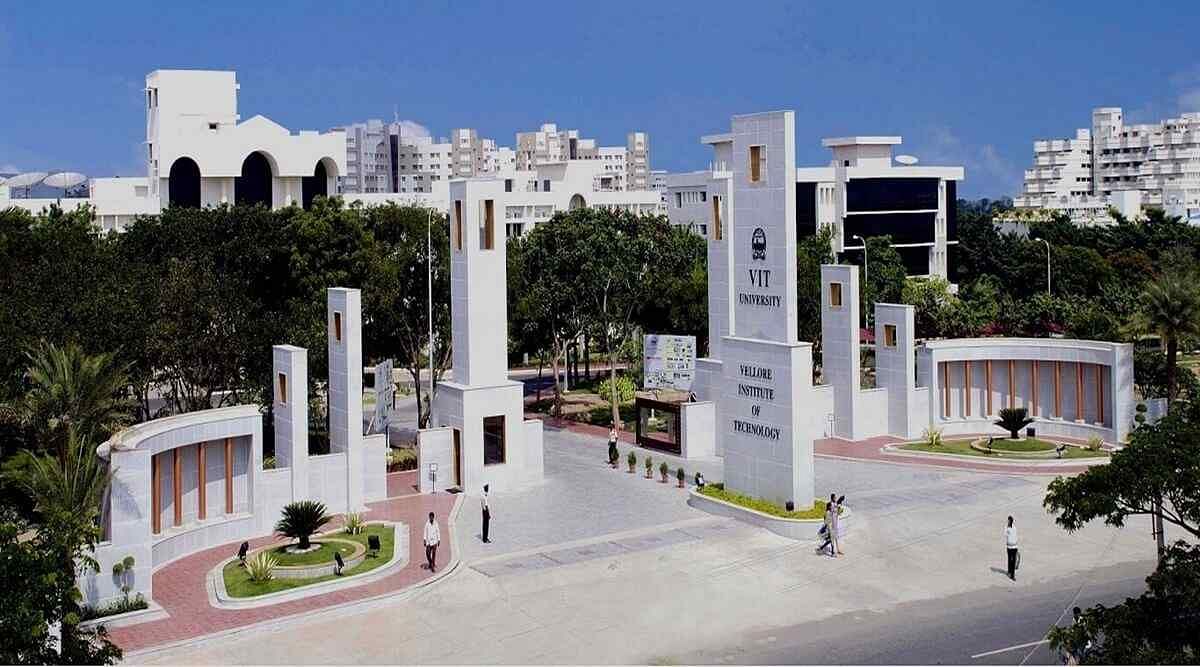
Top Private Engineering Colleges in India 2024 - NIRF Ranking wise
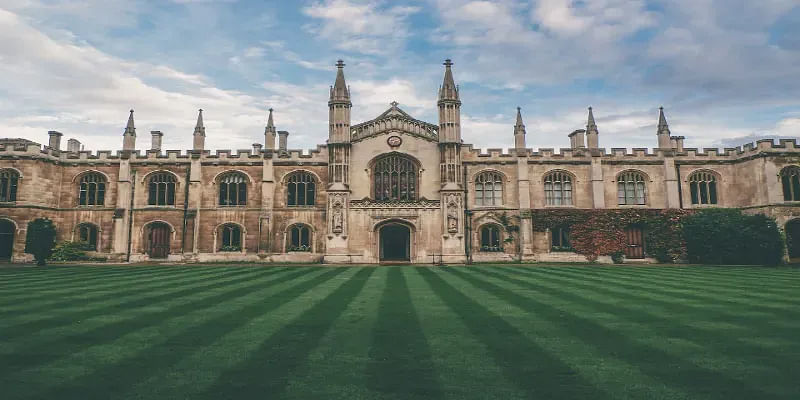
NIT Colleges in India 2024: NIRF Ranking, Courses, Admission

Get Free Scholarship worth 25000 INR


You are here
Students under this category gets an opportunity to earn a doctorate in Engineering / Sciences / Humanities just after the Bachelor’s degree.
Admission to this programme is open to the Departments as furnished in the Institute website / Advertisement. Registration under this programme is generally open in the following Departments.
PhD in Engineering: Civil, Chemical, Computer Science, Electrical, Mechanical, Biomedical, Metallurgical and Materials
PhD in Science: Mathematics (Only CFTIs), Chemistry, Physics
PhD in Humanities and Social Sciences: HSS
Minimum Eligibility Requirements:
For Students of Centrally Funded Technical Institutes (CFTIs)
Research Area will be same as Regular Ph.D Program
Studying in final year of B.Tech/BE
No GATE or other equivalent national exam qualification required
CGPA of at least 8.0 out of 10.0
For Students of Non-CFTIs
Research Area will be same as Regular Ph.D Program
Studying in final year B.Tech/BE
GATE or other equivalent national exam qualification required at the time of joining
Programme Details
Regular PhD programme guidelines will be followed
Click here For Apply Online
How To Apply
QUICK FINDS
- Annual Reports
- Central Workshop
- Central Research Facilities
- Booking Portal- Main/TC Campus
- Booking Portal
- Counselling Cell
- Download Forms
- Download Forms-Hindi
- Institute Statutes of IIT Ropar
- THE INSTITUTES OF TECHNOLOGY (AMENDMENT) ACT, 2012
- Internal Complaints Committee (ICC)
- Internal Audit manual
- SC/ST/OBC Students Grievance Cell
- SoPs of various sections
- Covid Circulars
USEFUL LINKS
- Anti-Ragging
- Indo-Taiwan Joint Research Centre
- Student Council
- Student Affairs
- Women's Forum
- Project Position
- Institute staff (SC/ST/OBC) Grievance Cell
- Digi Locker
- Samarth Login
- List of Holidays
- Convocation
OTHER LINKS
- Store & Purchase
- Intranet - Transit Campus
- Institute Telephone Directory
- GIAN Course at IIT Ropar
- RTI Disclosures
- Recruitment and Promotion Policy
- Stores & Purchase Manual
- हिंदी प्रकोष्ठ
- हिन्दी पत्रिका
- क्षितिज-The Horizon
- Annual Property Return
- Beti Bachao Beti Padhao
CONTACT DETAILS
Indian Institute of Technology Ropar, Rupnagar,Punjab - 140001,India
Tel: +91-1881-242105 Fax: +91-1881-223395
Follow us-
Copyright © 2024, IIT Ropar
Designed by IT Services

- Study Destination
- News & Article

PhD after B.Tech or B.E.
Pursuing a PhD after completing a Bachelor of Technology (B.Tech) or Bachelor of Engineering (B.E.) degree is becoming increasingly popular in India. With the rise in research and development (R&D) centres, research organisations, and technology companies in India, the demand for highly skilled research professionals is increasing rapidly. This has led to many engineering graduates considering pursuing a PhD after completing their engineering studies.
A PhD degree is considered the highest academic qualification and is highly valued in academia and industry. Pursuing a PhD in India after a B.Tech or B.E. degree allows one to specialise in a particular field, conduct cutting-edge research, and contribute to developing new knowledge. A PhD also offers an opportunity to work in academia as a professor, researcher, scientist or in industry as a research and development professional or a high-level executive.
The education system in India is divided into different levels: primary, secondary, higher secondary, undergraduate, postgraduate, and doctoral. B.Tech and B.E. are undergraduate programs that offer a four-year degree in various engineering disciplines, such as mechanical engineering, electrical engineering, computer science engineering, civil engineering, and more. Doctoral programs are the highest level of education in India and are usually pursued after completing a postgraduate degree.

Eligibility Criteria for Pursuing a PhD after B.Tech or B.E.
- You must have completed a B.Tech or B.E. degree from a recognised university.
- Your B.Tech or B.E. degree must be in a relevant field.
- You must have a minimum of 60% marks in your B.Tech or B.E. degree.
- Some universities require applicants to take an entrance examination. The entrance examination typically covers mathematics, physics, chemistry, and engineering.
- The entrance examination allows the university to assess your academic abilities and potential for success in a PhD program.
- Some universities require applicants to have research experience. Research experience can be gained through internships, summer research programs, or independent research projects.
- Research experience is an important factor in the admissions process, as it demonstrates your interest in research and your ability to conduct independent research.
- If you are applying to a university in a country where English is not the primary language, you must demonstrate English proficiency. You can take an English language proficiency test, such as the TOEFL or IELTS.
- English language proficiency is an important requirement for admission to PhD programs, as most PhD programs are taught in English.
Steps to Pursue a PhD after B.Tech or B.E.’
Choosing the right field of research.
The first step is to choose the right field of research. This is an important decision, as it will determine the focus of your PhD studies. Consider your interests, strengths, and career goals when choosing a field of research.
Identifying Potential Advisors and Universities
Once you have chosen a field of research, you need to identify potential advisors and universities. You can do this by reading research papers, attending conferences, and networking with other researchers.
Applying for PhD Programs
Once you have identified potential advisors and universities, you must apply for PhD programs. The application process typically involves submitting an application form, transcripts, letters of recommendation, and a personal statement.
Completing Coursework and Qualifying Exams
If accepted to a PhD program, you must complete a set of coursework and qualifying exams. The coursework will help you to develop the knowledge and skills necessary to conduct research. The qualifying exams will assess your field knowledge and ability to conduct independent research.
Conducting Research and Writing a Dissertation
The main focus of a PhD program is conducting research and writing a dissertation. The research will be conducted under the supervision of your advisor. The dissertation is a long and challenging project but an important step in becoming a doctor.
Defending the Dissertation
Once you have completed your research and written your dissertation, you will need to defend your dissertation in front of a committee of experts. This is a critical step in the PhD process, as it is your opportunity to demonstrate your knowledge and skills to a panel of experts.
Benefits of Pursuing a PhD after B.Tech or B.E.
There are many benefits to pursuing a PhD after B.Tech or B.E., including:
- Career advancement: A PhD degree can open up many opportunities for career advancement in academia, industry, and government. A PhD holder is typically qualified to teach at the college level, conduct research, and lead projects.
- Increased earning potential: A PhD degree can lead to increased earning potential. According to the U.S. Bureau of Labor Statistics, PhD holders earn significantly more than those with a bachelor's degree or master's degree.
- Enhanced skillset: A PhD program will help you to develop a variety of skills, including research skills, writing skills, and presentation skills. These skills can be valuable in a variety of careers.
- Personal fulfilment: Pursuing a PhD can be a rewarding experience. It can allow you to learn about a subject you are passionate about and contribute to your field.
Challenges and Considerations for Pursuing a PhD after B.Tech or B.E.
Here are some of the challenges and considerations for pursuing a PhD after a B.Tech or B.E.:
- Length of the Program: A PhD program can take 5 to 7 years. This is a long commitment, and it is important to ensure you are prepared for the time and effort required to complete a PhD.
- Funding and Financial Support: PhD programs are typically very expensive. It is important to make sure that you have a way to fund your education before you start a PhD program. Several funding options are available, such as scholarships, fellowships, and teaching assistantships.
- High Level of Competition: PhD programs are very competitive. It is important to have a strong academic record and research experience if you want to be accepted to a PhD program.
- Limited Job Opportunities: There are limited job opportunities for PhD holders in some fields. It is important to research and ensure that there are job opportunities in your field before you start a PhD program.
Popular PhD Programs after B.Tech or B.E.
Phd in computer science and engineering.
A PhD in Computer Science and Engineering (CSE) is a research-based degree that prepares students for careers in academia, industry, and government. CSE PhD programs typically involve coursework, research, and a dissertation.
Coursework in a CSE PhD program typically covers topics such as algorithms, data structures, computer architecture, operating systems, and software engineering.
Research in a CSE PhD program typically focuses on a specific area of computer science, such as artificial intelligence, machine learning, computer graphics, or networking. A dissertation is a long, original research project culminates in a written thesis.
PhD in Electrical Engineering
A PhD in Electrical Engineering (EE) is a research-based degree that prepares students for academic, industry, and government careers. EE PhD programs typically involve coursework, research, and a dissertation.
An EE PhD program's coursework typically covers circuit theory, electromagnetics, signal processing, and control systems. Research in an EE PhD program typically focuses on a specific area of electrical engineering, such as power systems, telecommunications, or biomedical engineering. A dissertation is a long, original research project culminates in a written thesis.
PhD in Mechanical Engineering
A PhD in Mechanical Engineering (ME) is a research-based degree that prepares students for academic, industry, and government careers. ME PhD programs typically involve coursework, research, and a dissertation.
Coursework in an ME PhD program typically covers thermodynamics, fluid mechanics, heat transfer, and solid mechanics. Research in an ME PhD program typically focuses on a specific area of mechanical engineering, such as materials science, mechatronics, or robotics. A dissertation is a long, original research project culminates in a written thesis.
PhD in Civil Engineering
A PhD in Civil Engineering (CE) is a research-based degree that prepares students for careers in academia, industry, and government. CE PhD programs typically involve coursework, research, and a dissertation. Coursework in a CE PhD program typically covers structural engineering, geotechnical engineering, environmental engineering, and water resources engineering.
Research in a CE PhD program typically focuses on a specific area of civil engineering, such as transportation, construction, or earthquake engineering. A dissertation is a long, original research project culminates in a written thesis.
PhD in Chemical Engineering
A PhD in Chemical Engineering (ChE) is a research-based degree that prepares students for academic, industry, and government careers. ChE PhD programs typically involve coursework, research, and a dissertation. Coursework in a ChE PhD program typically covers thermodynamics, fluid mechanics, heat transfer, and mass transfer.
Research in a ChE PhD program typically focuses on a specific area of chemical engineering, such as process engineering, catalysis, or biochemical engineering. A dissertation is a long, original research project culminates in a written thesis.
Can I pursue a PhD after B.Tech or B.E.?
You can pursue a PhD after completing your B.Tech or B.E. degree in India.
What are the eligibility criteria for a PhD program after B.Tech or B.E.?
The eligibility criteria for a PhD program after B.Tech or B.E. vary depending on the university or institution. However, most universities require a minimum of 60% marks in the undergraduate program and a valid GATE score.
Is clearing the GATE exam for a PhD program after B.Tech or B.E. necessary?
Clearing the GATE exam for a PhD program after B.Tech or B.E is unnecessary. However, many universities require a valid GATE score for admission to their PhD programs.
What is the duration of a PhD program after B.Tech or B.E.?
The duration of a PhD program after B.Tech or B.E. is typically 3-5 years, depending on the university and the research area.
Can I get a scholarship for a PhD program after B.Tech or B.E.?
Yes, many universities and government agencies offer scholarships for PhD programs after B.Tech or B.E. Some of the popular scholarships include the Junior Research Fellowship (JRF), Senior Research Fellowship (SRF), and the Council of Scientific and Industrial Research (CSIR) fellowship.
What are the career opportunities after completing a PhD program after B.Tech or B.E.?
After completing a PhD program after B.Tech or B.E., you can pursue a career in academia, research and development, or industry. Some popular job roles include research scientist, postdoctoral fellow, data scientist, and academic faculty.
Related Posts :

- Hyderabad News
Students get PhD option after BTech from 2022-23

Visual Stories

What makes CV different? Social Experiment by CV

#ChunoApnaSahi
Explore Programs
Top Universities

India's leading universities on a single platform within two minutes.
100+ Universities
30X comparison factors
Free expert consultation
Quick Loan facility
Celebrating 1 lac admissions
Post Admission Support
CV Exclusive Community
Job + Internship Portal

Compare & Select from 100+
PhD After BTech Universities
- No-Cost EMI From ₹4,999
- Comparison on 30+ Factors
Ph.D. After BTech
Watch Video
Listen Podcast
No. of Universities
Course Duration
3 - 5 Years
Eligibility
Graduation or Equivalent
Learning Mode
EMI Facility
- Program Overview
- Key Highlights
- Subjects/Syllabus
- Eligibility & Duration
- Program Fees
- Admission Procedure
- Education Loan/EMIs
- Career Scope
PhD After BTech Program Overview
PhD After Btech Offered by certain institutes in India like IITs, NITs, and BITS Pilani, etc. PhD after Btech is a viable option for students who want to pursue advanced research in certain specializations. However, due to the full-time nature of the program, it can be difficult for working professionals to give full-time commitment to the program. Considering the need for flexibility in this program, several international universities have introduced an online PhD under the name of Online DBA.
An Online DBA is not offered by Indian institutes as it is still not UGC-approved. However, when you complete it from an accredited foreign university, your doctorate will be completely recognized in the Indian job market. The primary objective of introducing an online doctorate program is to make it more flexible and convenient for working professionals so they can continue their jobs while pursuing PhD via an online mode known as Online DBA.
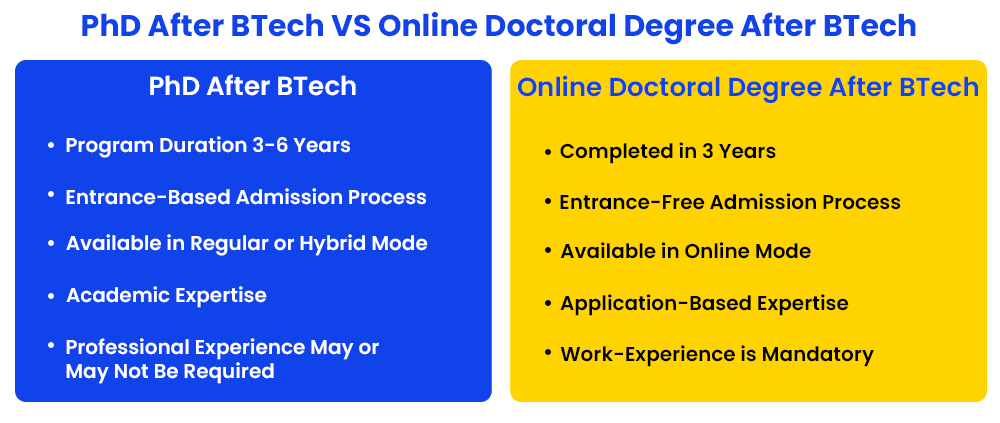
Since an online DBA is not offered in India, you might be paranoid about not being able to use a “Dr.” title after it. Well, if you have completed your online doctorate from a recognized foreign university, you will be awarded a doctorate, permission to use the “Dr.” title to your name, and an alumni status of that university. All of these program outcomes help you stand out in the crowd and provide you with some amazing job offers in the international as well as Indian markets.
Key Highlights of PhD After BTech In India
- PhD After Btech is available in reputed institutes like IITs, NITs, and others.
- Continue your professional commitments with a specially designed PhD program known as Online PhD or Online Doctoral Degree.
- Become part of foreign universities by joining an online PhD for working professionals.
- Work on global case studies and research methodology with an online DBA or PhD.
- Improve your communication and other soft skills by interacting with peers and faculty members in live sessions from all around the world.
- Get access to online libraries and other digital resources from anywhere at any time.
- Avail of the opportunity to expand your professional networking with optional global immersion programs.
- Earn a doctorate upon completion of the course and fulfill your desire to add a “Dr.” title to your name.
- Explore different aspects of your career in both technical and management domains with a PhD.
Admission Closing Soon
Compare & Enroll NOW
- To avoid paying 25% Late Fees on all the online courses
- To secure a seat in your dream university
- To avail of some amazing Early Benefits
PhD After BTech Course Subjects/Syllabus
The curriculum of the PhD for working professionals also known as online DBA for working professionals at international universities focuses on thesis review sessions, topic-based learning, and dissertation. Here is an overview of the topics that you will study in an online DBA at Golden Gate University.
| Foundation | Concentration |
| Dissertation | |
| Related Programs | |
|
|
|
|
|
|
|
|
|
|
|
|
|
| |
PhD After BTech Eligibility & Duration
To apply for PhD after BTech students have to meet certain eligibility criteria such as good scores in entrance exams like GATE, NET, etc. A Letter of recommendation is required, and a statement of purpose is also required, etc. However, for flexible PhD programs or Online DBA, students require a 4-year bachelor's degree with a minimum of 5 years of work experience. A relaxation in the years of experience might be offered to applicants with exceptional profiles and qualifications.
Course Duration of PhD After BTech
A PhD course duration lasts 5-6 years with a full-time commitment. However, for a flexible PhD program, Online DBA is completed in 3 years which is one of the major advantages of the program, with access to top-level faculty and high-quality study material, this time commitment seems better for working professionals.
Benefits of learning from us
- Join CV Community for peer interaction
- Get placement support via webinars & networking sessions
- Dedicated CV Buddy for your queries
- One-on-One career mentorship sessions
- Ensures timely delivery of LMS & degree
- A career advisor for life
Program Fees for PhD After BTech
Starting at ₹ 6,776/month
Program Fee: ₹60,000 - ₹2,50,000
Low Cost EMI Available
Recommended
For an online PhD after a BTech or Doctoral degree fee ranges between INR 8 and 12 lakhs INR and maximum packages go to 25 Lakhs INR depending on the institute. However, through an Online Doctoral degree, students get flexibility and access to international universities. Scholarships are available for students to apply for.
PhD After BTech Admission Procedure
For a PhD After the BTech admission process is quite time-consuming, even after the entrance exam and submitting required documents, some institutes may ask for research proposals while applying. However, the admission process for a PhD for working professionals or an Online DBA is quite simple and can be finished in a few stages. First, you need to complete some standard steps that apply to almost every program, such as registering for the program on the official website. Next, complete the application by providing your personal, professional, and academic information.
Since this online doctorate is available at international universities, you might need to submit your CV, statement of purpose (SOP) cover letter, and letters of recommendation after you have heard back from the university’s admissions committee. After your form and documents are reviewed, you will get an offer letter from the university. Your program enrollment number and unique student credentials will be sent to you when you complete the last fee payment step.
Trusted Information
We provide only authentic information from verified universities to save you from fraud.
Hassle-Free Admission Process
Enroll in your program via a simplified process guided by our expert counselors.
Pay Directly to the University
The guidance & support offered by us is completely free, so you can trust us & pay directly to the university.
CV Community at the Center
Join our telegram community to share your thoughts with other learners & alumni.
Growth of Online Education in India
- Online education in India is set to grow at a CAGR of 19.9% by 2030.
- Skill development and employment are the major driving forces for this growth.
- Higher education is gaining popularity in this online medium.
- Financially affordability is a significant contributor to this boom.
- The increased adoption of technologies, i.e., the Internet and smartphones, has increased accessibility significantly.
- The advantage of flexibility in terms of time and location is the key highlight.

Education Loan/EMI Facilities for PhD After BTech
Being the highest degree program in the domain and offered by international universities, this Online PhD or Online DBA has a slightly higher fee range. This makes you think twice about pursuing this program, however, you do not have to as the universities offering it have already included an EMI facility in the fee payment methods. This way you can easily pay the course cost in monthly installments without feeling any extra financial burden. An option like no-cost EMI on credit cards is available from all major banks.
Apply For No Cost EMI

Is PhD After BTech Worth it?
Completing your dream of achieving a ‘Dr’ title is accomplished by a PhD. PhD teaches an advanced level of studies of the chosen specialization and qualifies students as subject matter experts.
Additionally, Finishing a DBA or Online PhD provides international recognition from international universities with benefits like shorter duration, flexibility, convenience and no-cost EMI methods.
After receiving an online doctoral degree students get access to the doors in the research field as well as higher business management roles. Moreover, getting an online DBA degree from an International Institute comes with access to global networking opportunities and increases the possibility of settling abroad.
- CV Advantages
College Vidya Advantages
Job Opportunity after PhD After BTech
Upon completing PhD After Btech there will be a lot of opportunities for higher management roles in the corporate world as well as researcher roles. Specific job roles also depend on the chosen specialization. Professionals with doctorate degrees are invited as guest lecturers at many reputed institutions. Here are some job options available in business and IT after a PhD.
| Research Manager | Financial Manager |
| Data Scientist | Operations Manager |
| Software Engineer | Marketing Manager |
Top Recruiters for PhD After BTech
After completing PhD, candidates land job roles in various organizations depending on their specialization. A PhD broadens your professional prospects because of your creative working style with technical tools. This skill of doctorate holders is quite admired by famous organizations with headquarters in India or other countries.

Our students work at

Let's clear up some doubts about PhD After BTech
1 can i do a phd directly after btech.
Yes, you can directly pursue PhD after BTech if you meet the required eligibility criteria. However, there will be options for online PhD or online doctorate degrees that offer a comparably smooth admission process.
2 What is the salary package offered for a PhD After Btech in India?
In India, the salary of PhD holders is based on their years of experience in the field. 2-4 years of work experience can earn you about 5-10 LPA. 5-20 LPA is the range for professionals with 4-8 years of experience. The median salary in this field is around 35-50 LPA with more than 10 years of experience.
3 What is the minimum GRE score for enrolling in an Online DBA?
An Online DBA by an accredited foreign university does not demand a good score in any kind of entrance exam.
4 How many years is a PhD After BTech?
A PhD after Btech is generally 5-6 years long depending on the institution and chosen specialization. However, an Online PhD or Online DBA is completed in 3 years.
Every query is essential.
Our team of experts, or experienced individuals, will answer it within 24 hours.
By clicking, you agree to our Privacy Policy , & Our Trust
The intend of College Vidya is to provide unbiased precise information & comparative guidance on Universities and its Programs of Study to the Admission Aspirants. The contents of the College vidya Site, such as Texts, Graphics, Images, Blogs, Videos, University Logos, and other materials contained on College vidya Site (collectively, “Content”) are for information purpose only. The content is not intended to be a substitute for in any form on offerings of its Academia Partner. Infringing on intellectual property or associated rights is not intended or deliberately acted upon. The information provided by College Vidya on www.collegevidya.com or any of its mobile or any other applications is for general information purposes only. All information on the site and our mobile application is provided in good faith with accuracy and to the best of our knowledge, however, we make nor representation or warranty of any kind, express or implied, regarding the accuracy, adequacy, validity, reliability, completeness of any information on the Site or our mobile application. College vidya & its fraternity will not be liable for any errors or omissions and damages or losses resultant if any from the usage of its information.
Build with . Made in India.

- Citrix Fellows
- Sony Fellows
- The Murthy Govindaraju Research Endowment Award in Power Electronics
- Murthy Govindaraju “Women in Computer Science” Endowment Award
- Br. C. Selvam Endowment Award
- Department of Computer Science and Automation
- Department of Electrical Communication Engineering
- Department of Electrical Engineering
- Department of Electronic Systems Engineering
- Centres of Excellence
- Research Clusters
- Stories from EECS
Why PhD? — FAQs
Questions from participants of the ‘Why PhD?’ event held on 27 October 2022, answered by faculty members of the Division of EECS
1. Which route is better – BTech–>PhD or BTech–>MTech–>PhD?
Mayank : Procedure-wise, those who join PhD after BTech are required to do more course work – eight courses, compared to four. There is one semester of extra course work needed for those who join after BTech. Other than that, there is no difference in terms of the requirements. In some sense, you are saving one-and-a-half years. But I would say you are actually saving one year. MTechs come with some level of training on various tools and skills needed. BTechs don’t come with those trainings, but those trainings are also offered. IISc also offers an integrated PhD position, wherein if you have a certain number of credits, you get both Master’s and PhD degrees. This means that you don’t lose anything; you only gain an extra year, and that extra year can be invested in many things in future.
2. Is MTech mandatory for joining a PhD programme?
Mayank : No.
3. What are the expectations from an MTech student wishing to pursue PhD?
Please watch the initial 19 minutes of the ‘Why PhD?’ event here.
4. What is the difference between MS by research and PhD?
Chaya : MS by research is a research programme of a shorter duration. If you are sure that you want to get a taste of doing research, but you don’t want to commit for a longer duration, then perhaps MS by research is a good idea. In terms of the work that you do in MS by research, you typically either solve one problem or a couple of problems that are closely related and write an MS thesis whereas, in a PhD programme, it is more like a journey where you go from solving problems that are given to asking good questions yourself and becoming an independent researcher. So, it really depends on what you want to do, and what your goals are after your degree. If you feel like you want to try doing research, but you are not sure if a PhD is good for you, then you can enrol for an MS by research programme, which is sort of a good intermediate point, and if you have fun doing it, you can upgrade to PhD or finish your Master’s and then enrol for PhD.
Mayank: You can also request for conversion from MS by research or MTech to PhD. At least in IISc and some of the top institutes in the country, this conversion process exists.
5. What is the difference with respect to course work, duration, placement, and project in PhD, MS, and MTech?
Vishnu : If you look at the different departments, there may be some variations, but the course framework is very clear with respect to the MTech programme. Typically, you are expected to do roughly about 40 credits of course work. Each course may be 3 or 4 credits; they may be graduate or post-graduate level courses. Then, there will be a project component, which is typically around 24 credits. MTech students complete the course work in one-and-a-half years.
Mayank : Let me put this in this way: MTech course work – 12 courses; MS – 6 courses; PhD – 4 courses if you join after MTech, 8 courses if you join after BTech. Typically, you do 5 courses in one semester. Placement is the last thing that IISc students worry about. I hope this statement makes it clear what the placement opportunities are. Students in IISc think about many other things, and placement is the last think to worry about. Regarding the project, it all depends on areas, groups, faculty. It is completely diverse. It cannot be classified as PhD, MS, MTech. But typically, MTech projects are fixed duration projects, MS projects are also fixed duration projects in some sense, whereas PhD is a training programme, it is not a project per se. It all depends on how fast you can demonstrate your ability to do independent research.
6. Can we know about part-time PhD?
Chiranjib : The only way we can enable part-time PhD is through the external registration programme. Here, there are certain rules, which are publicly available. The summary of the rules are: the company should give you leave for one year so that you are physically present here. There should be an advisor from the company side. After one year, you can go back to your company, and contribute both to your company and to your thesis.
7. Do I have to pay huge fees if I get admission to the external registration programme as a PhD candidate from a Government organisation (when the parent organisation does not fund the fees)?
Mayank : The organisation has to sign for funding your fees. This fees is higher than that for the regular PhD candidates, who pay from their stipends.
8. Can you explain the advantages and disadvantages of doing part-time and full-time PhD?
Chiranjib: The only way to pursue part-time PhD is through the external registration programme. As I have seen over the years, most of the ERP students are senior, that is, they have a family and also a job. So, the good thing is that they are much more focussed than our usual students who are full-time PhD students. However, for our full-time students, it is perfectly alright to say, “I have no idea what I am going to do research on. Let me read lots of papers, lots of books; let me try to find problems and try to solve them.” We welcome that; that is actually the best training you can have, because you should not only have a good problem to solve and lots of papers to write during your PhD, but you should also come out as a well-rounded person who is exposed to many things in that subject. For that, our full-time PhD has a big advantage. But, for ERP, your company would also expect you to do some work because they are paying you a salary after your first year. Often, most companies do not leave the candidate alone since there are some expectations. So, unless a candidate is very focussed, unless you have a good mature problem and a good direction, that can become a challenge. This would be a very high-level advantage/disadvantage. So, a one-line summary would be that a full-time PhD allows you to explore many topics, and I personally think this is absolutely essential for somebody with a PhD degree, whereas in a part-time PhD (the ERP programme), because of the lack of time, it will be good if the candidate is focussed. However, there are several examples in our department of ERP candidates who have excelled, and they have written excellent papers.
9. How can we apply for PhD at IISc?
Chiranjib : Currently, we are preparing ourselves to introduce some candidates in November. So, you can still apply. Go to IISc website, you will see admissions and there are clear instructions to fill up certain forms. When you apply, each department—according to the criteria the department chooses—shortlists a select set of candidates. The candidates will then be called for an interview or a written test, and this varies from department to department. For example, in CSA department, if you are shortlisted for an interview, you will be asked to choose a stream – either computer systems and software or intelligent systems or theory, and appropriately, there will be questions asked, and we often stress on foundations. It is perfectly alright to say, “I do not know advanced topics; I only know foundations, but I am pretty strong in that.” Those are the type of candidates we are looking for. So, we check for basic curiosity and mastery at the undergraduate level. If you already have a good Master’s degree, it’s even more of a plus. So, this is the way we select our candidates.
10. How do you select candidates for PhD at IISc?
Please watch the initial 19 minutes of the ‘Why PhD?’ event here .
11. Can I pursue PhD after two years break from my studies?
Mayank : Yes.
12. If I am planning on a PhD after 2–3 years of industry experience after MTech, what points should I keep in mind? How can I update myself in the desired field of research while doing an industry job?
Chiranjib : We all have our own views. My research area is in machine learning. So, my answer will be tuned towards that, from that perspective. What I have found is that often, in most of the jobs which are offered here, skills such as proving theorems and reviewing papers are not utilised; hence, in two years’ time, some of these good, strong, academic foundations tend to get lost. That is one case of worry. So, jobs that especially have a large software development component actually cause decay in your academic credentials. That can be very bad news for PhD. However, if you are in a job where you are constantly reading papers, supplementing them – then, that is exactly the job profile which would definitely motivate you to do PhD. It prepares you well. So, my suggestion would be that if you are planning for a PhD after 2 to 3 years, please keep in mind that you should keep yourself abreast of your GATE syllabus and mathematical subjects. You should have familiarity with that. If you are already doing a research-related job, you are very well fit to walk into a PhD programme. Having said that, there is definitely merit in having an industry exposure because that is where there is real excitement.
13. What are the opportunities to do a PhD while working simultaneously in industry?
Mayank: First of all, PhD is a full-time engagement. There is no PhD possible while working in industry except through the external registration programme (ERP) or the sponsored programme that we have. And, even in that case, your engagement on a PhD problem is priority number one. This is also a myth that PhD is a project, and so, you can take up one more project and you can continue working on your industry job. This is not the case. If you are working in industry, either you leave that job, come for a full-time PhD, stay in IISc for a longer period, or if you want to be in your industry job and if your employer supports it, you can enrol for the ERP programme; but even there, you have to commit for the entire course work and after the course work, your administration should give you enough bandwidth and time to work on your PhD problem. Usually, when we sign papers, we expect that the industries commit their employees to be available at least 50–60 percent of their time to work on the PhD problem. Your PhD problem will become your full-time job, and your industry job will become your part-time job.
14. What are the opportunities for a post-doctoral programme at IISc Bengaluru after a PhD in the field of biomedical signal processing, artificial intelligence, and machine learning?
Vishnu : There are different types of post-doctoral programmes that are being offered by IISc. There is a National post-doctoral fellowship; there are also Institute-level fellowships such as the C V Raman post-doctoral fellowship and the Institute of Eminence (IoE) post-doctoral fellowship. Those are all schemes, but you have to first identify a faculty who might be interested. I would recommend you to get in touch with faculty who are working in the field of artificial intelligence (AI) and machine learning (ML) who might be interested in your background. In the department of electrical engineering (EE), we have many faculty who are working in the field of biomedical signal processing, and one of them is Professor A G Ramakrishnan. Professor Sriram Ganapathy is working on speech processing. Professor Prasanta Kumar Ghosh and Professor Muthuvel Arigovindan also work in related areas; you can consider reaching out to them. There are multiple faculty who work in this area, and I would recommend you to get in touch with them.
Sudhan : In the department of electrical communication engineering (ECE), Professor A P Prathosh is working on AI and ML for biomedical signal processing.
Chaya : In the department of computer science and automation (CSA), intelligent systems is an entire research stream, and we have several faculty colleagues working on AI, ML, and related problems. We also have some post-doctoral fellowships like the IoE fellowship. You can check out the department webpage – the information is there. If you think it is suitable, you can apply.
Mayank : In the department of electronic systems engineering (ESE), you should contact Professor Hardik J Pandya and Pofessor Chetan Singh Thakur who work on biomedical signal processing and biomedical topics using AI and ML. You can also contact Professor Shayan Srinivasa Garani who works on signal processing and applications of AI and ML in signal processing. More than 30% of EECS is now in AI/ML and its applications in various fields.
15. Regarding students who want to take up roles in nanoelectronics offered by multi-national companies such as Intel/TSMC/Samsung – what will hold them back in India after a PhD? I am talking about working with leading-edge technologies such as transistors.
Mayank : Whether you stay back in India or you take up positions abroad, that’s completely your choice. IISc prepares you to an extent that is parallel to any best institute in the world, and when you trained to that level, you will have opportunities from around the world. Then, it is completely your call to decide whether you want to stay back in the country or you want to take up a position elsewhere, depending upon the opportunities. Many of us spent a good time in the United States or other parts of the world, and decided to come back for our own calling. So, at the end of the day, it’s your own calling – what you want to do, and where you want to do what you want to do.
16. If a person decides to stay back and work in academia in India – where can he/she get funds to conduct independent research (other than institutes that are a handful in number)? What would even drive him/her if not for industry–academia collaboration and facilities?
Mayank : The drive is completely yours. There are several funding opportunities. Among the researchers and often faculty in tier 2 institutes, there is a myth that the funds are often biased and that they are available only for top institutes. Many of us have been in these committees, and we can tell you that these funding allotments are highly competitive, and they go through a rigorous screening and evaluation process. In that screening and evaluation process, nobody looks into your affiliation. Of course, there is often a correlation between your affiliation and how good your curriculum vitae (CV) is. People often miss out the CV part and often, unfortunately, correlate with the institution. But the fact is that one would look into the proposal, and one would look into the CV. The CV tells of the promise of the individual to deliver the promise or the confidence that the funding agency gains in terms of the individual being able to deliver the promise given in the proposal while the quality of the proposal tells how much advancement in the state-of-the-art will happen if that proposal is pursued or executed. So, if you have written a good proposal, and if you have carefully built your profile, by taking up every opportunity that comes in front of you from the initial stage, after a certain time, you will not feel that your proposal has been kicked out. You will have funding available if you are doing well and if you are writing good proposals. It is an exponential path. So, if you do well, you will do further well and you will have more and more opportunities. Now, if you get into this exponential path, you will have the drive.
17. What happens to research works/papers after they are published? Who actually uses them?
Vishnu: When you do research, whatever be the research, you always stand on the shoulders of giants. You are always looking at what others have done, and that gives direction to your work. In that sense, it is going to be useful to future researchers. You might have used some type of experimental technique or you would have proved a theorem in a particular way, and somebody might use that result as an inspiration to find out something new. All published research will have their own uses.
Sudhan : Once you publish a paper, assuming the paper is not patented, or even if you patent it and then publish, this work can be used by the community. In a specific area, there will be more than a thousand to million people who will be working in the same direction. If your work is very important and significant, then they will cite your paper once they use your method. Then, you will get credit based on how many researchers cited your paper, and that will add value to your CV and your publications; that will also help you for your promotion and when you are looking for a job. You can benefit in many ways if your published paper is very good.
Chaya : Whenever we publish a paper, we are basically advancing the state-of-the-art and knowledge. We either prove a new theorem that gives us new knowledge, or if it’s not a very theoretical paper, we show a better way of doing things that is more efficient than how we currently do things. If you are advancing the state-of-the-art in a theoretical way, then you are basically giving other people more tools to build on top of that. You are contributing to expanding knowledge in some way. If you write a more applied paper, there are also other ways of it being used. The result can actually get deployed in the real world and be made use of in the industry. For example, in computer science, if you come up with new algorithms for very relevant problems or in cryptography, if you come up with cryptographic schemes – today, there is a lot of scope for them to be deployed. This was always true. There used to be a time lag between when you make a certain contribution and when you can actually see that implemented in society. Today, I think that gap is reduced, and you can actually live to see your science making changes.
Mayank: Often, students don’t know what to do with a paper, and often, students are misled in terms of publication as a requirement. What is a paper? A paper is basically your communication about the advancement you have done in a certain field of science or engineering. That advancement is based on a problem statement that you pursued, and you tried to solve. Basically, your paper talks about a certain way of solving a problem. There may be many ways of solving the same problem, there may be many views on the same problem. You are communicating your way of solving that problem or elaborating that problem or even understanding that problem better. Now, how does the problem originate? The problem may originate from something which is pertinent within industry, something which is highly in demand within industry. Then, through peers and the community and through other papers, you get to know a particular problem that the world is trying to solve. That is one. The second is that a problem could be fundamental in nature, say, understanding certain aspects of nature or the universe. It could be physical sciences, it could be biological sciences, it could be mathematical sciences, chemical sciences… So, basically, you are trying to understand a certain property or uniqueness of nature, which has not been explained or elaborated before. That’s also a problem statement. The third type of problem statement could be that a community or a group of people have come up with certain predictions for tomorrow – that tomorrow the world will be of this kind in terms of science and technology, and you are trying to basically develop the idea further by either pointing out certain problems that the world needs to address or by working on problems that other colleagues would have pointed out that this field has to evolve or develop. You have to work on these problems, for example, quantum technologies. These are areas where the problem has originated from the vision that the community has projected. Now, this gives you the problem. If you have solved that problem, the solution or the paper goes back to the same community which has basically given that problem. That community could be your academic circle, it could be your industrial circle, or it could be your other scientific community or colleagues who were posing those problems, or who were parallelly working on those problems. Either it can result in advancing the state-of-the-art of the technology or in an understanding of nature or science. When people cite these papers, you also get noticed as a result of that. Fundamentally, the paper goes back to the community which has posed the problem to the community.
18. Any suggestions on how to work on our dream projects during the current BTech itself?
Chiranjib : In IISc, there are opportunities for doing internships after your BTech. Unfortunately, you don’t have a good, structured programme. Often, you can look up Professors’ websites and see if the things which you want to learn about and want to do your dream projects about is aligned with the Professors’ interests. Do write to the Professor. If you don’t get any response, it is not that the Professor is not interested but it may be that the Professor does not have any positions open. If there are positions open, they will definitely get back to you. We welcome young minds.

PhD After B.Tech : Is It Really Possible?
by ForeignAdmits
Updated on February 23, 2021
Firstly, you might be confused that Is PhD directly after B.Tech. Possible? How come? Many of us also doubt if we can pursue a PhD if we are in engineering. Because, a lot of times, questions like
Can engineers do a PhD?
D o I research after B.Tech.?
Can I do a PhD without GATE? And many similar ones pop up quite frequently.
In this article, we will discuss the aspects and possibility of pursuing a PhD after B.Tech.?
Is Pursuing PhD Directly After B.Tech? Possible?
In fact, Yes. (*Surprise* *Surprise*)
But, shouldn’t I first get a Master’s degree before a PhD? (*Visible confusion*)
Let us clear the confusion. Firstly, we all believe that getting a doctorate is a real big deal, as it is the highest academic achievement and one has to put a lot of time, effort and focus into it. Generally, it is,
Graduation → Post Graduation → PhD
Don’t we skip a step while climbing the staircase to reach the top faster by putting in more effort? Similarly, it is here.
You can directly pursue a PhD after B.Tech. But, since you do not have a master’s degree, you will need to put more effort during your graduation to prove your worth to pursue a PhD.
Also Read: Is Master’s Mandatory For PhD?
For instance, students pursuing PhD are highly competitive and ambitious. Studying with them will provide you with an abundance of knowledge and a lifetime of experience. But, you also need to be diligent, hard-working and dedicated to savouring the satisfaction of getting into PhD directly after a bachelor’s.
So, What Are The Requirements To Get Into PhD After B.Tech.?
Though different universities have different guidelines and requirements for individual PhD programs, some of the requirements are:
- Excellent academic performance in graduation
- GATE exam and GRE/GMAT/TOEFL/IELTS/PTE if you are applying abroad
- Having done additional courses relevant to the area of research one wants to pursue
- Letter of Recommendation (LOR)
- Statement of Purpose (SOP)
- Technical paper presentations, Extra projects
Do not worry if you don’t have all the above requirements. You can still pursue a PhD after graduation.
A less discussed method is: If you are passionate about the research, then reach out to the university professors, make them aware of your works and how you want to contribute to the research of the program you are interested in. Follow the research publications and professors of the programs you wish to enrol into. Put in extra effort and time to let the university know you have it in you.
Why PhD Directly After B.Tech.?
Generally, students prefer a master’s degree to learn more about the subject and figure out what individual program they will be interested in to do the research. If you have already decided or want to decide what field you are interested in, you can devote time to learn about the subject and research it thoroughly during your graduation.
If a PhD is your ultimate goal, then a PhD after B.Tech. It is the best option.
Imagine pursuing your PhD (which is known as the highest academic achievement, and people think they will get old by pursuing a PhD, Isn’t it? ) just after completing your Bachelor’s.
If interested, Further Read: UGC likely to ease teaching norms for direct PhD holders from IITs
Which Universities Provide Direct PhD In India?
Though the provision of a direct PhD is not rampant in India, you will be glad to know that the Indian Institute of Technology IIT provides a direct PhD to the students if they meet the specified criteria.
Pursuing PhD and that too from IIT is dreamlike. Right?
Can You Pursue a Direct PhD abroad?
While many universities abroad do provide PhD after Bachelor’s, it is generally integrated with a Master’s degree. So, as the student completes his Master’s degree and gets his credits, he goes on with his PhD work. Hence, this process takes 5 to 6 years for an individual.
The requirements to enrol in the PhD program varies even from field to field of research. You need to be specific about which area you will research on and then look up the universities you want to apply to.
Since you are applying abroad for a PhD directly after your Bachelor’s, an impeccable academic record and substantial research publications and recommendations are preferred.
Is GATE Exam Required?
Since you want to get into the PhD program right after your Bachelor’s, a GATE score is necessary. You need to score high as well to get into IIT’s.
But if you have done M.Tech., then GATE is not mandatory for PhD programs as you have already qualified GATE during your M.Tech. Admission process.
After going through all this, there must be a question in your mind. Is PhD Worth It?
It depends on your passion for research and innovation. As PhD deals with deep learning of the subject and advancing it for the future, it is a very responsible and highly respected work.
PhD holders get respected everywhere, especially in their field of study. They are experts and are the ones to go to when in time of doubt. They have expertise in the subject.
A decision to pursue a PhD can be exciting, and the most knowledgeable one is an evident shortage of PhD holders in India. A prefix Dr before your name will be a thing you will most proud of carrying around.
How can foreignadmits help?
As we know, A decision regarding your career is a crucial one. No matter how much you research online, there are always questions and doubts. By interacting with a mentor or a counsellor who is well-versed with the domain, you will have complete insight into what you are getting yourself into. It not only builds confidence but also provides you with a sense of relief.
Try Foreignadmits now!
A PhD is not merely a degree to carry around. It is the expertise and knowledge you put out for research and advancement. Every day is a new day to learn something incredibly new. Pursuing a PhD program right after your bachelor’s can be incredible and life-changing as you will be ahead of others in terms of expertise and knowledge.
Frequently Asked Questions
Q1. Is it acceptable to pursue a PhD after completing a Btech?
Ans. Yes, you may continue a PHD after completing your Btech both in India and overseas. It is not essential to get a master’s to apply for a straight PHD following Btech in India or overseas.
Q2. Is a Master of Technology necessary for a PhD?
Ans. After MTech, the following are the key qualifying criteria for pursuing PhD in India:
- The duration of a PhD following an MTech is approximately 3 to 5 years, depending on your subject and institution.
- GATE results are generally necessary for a doctoral degree following MTech, particularly if going to NITs and IITs.
Q3. Is the Gate exam required for a PhD?
Ans. A student having a Bachelor’s degree from any IIT along with a CGPA or CPI of 8.00 or more can enrol for PhD programs. Such individuals are excused from the GATE qualifying criterion.
Q4. What is the maximum age for a PhD?
Ans. There is no such age restriction for a PhD, however a JRF (Junior Research Fellow) must be 28 years old.
Q5. Can we get a PhD degree in engineering without a PG course?
Ans. Yes, you can seek a PhD in engineering despite having completed a postgraduate degree. This is known as a straight PhD program, and it is provided by nearly all IITs across India.
At ForeignAdmits, we understand how important this decision is. We are here to help you every step of the way, from finding the right school to getting admitted and securing scholarships.
ForeignAdmits have a team of experienced counsellors. We can provide you with customized guidance based on your individual needs contact us today to get started. We look forward to helping you achieve your educational and career goals!

All ways to do MSc/PhD Physics after B.Tech
- March 3, 2018

Dushyanth Edadasula
“How to become a Physicist after engineering?” “ Can I do MSc in physics after BTech?” “How to do a master’s in physics after mechanical engineering?” “Can I do a Ph.D. in Physics after Engineering?” “How to study Theoretical Physics after engineering?” To all those questions, the answer is,
“Yes!! you can study Physics after engineering in India,
and there are plenty of ways to do that too!!”
Hello, fellow Physics enthusiasts!!!
You might be wondering if there are any other people like you, looking to switch to physics after engineering.. the answer is a yes!! many people visit the blog and of them, we’ve successfully built a community of 1000+ engineers like you, looking to switch to physics after engineering. You can join the WhatsApp group from the invite link on this page . Some of our group members have made it big!! They have been selected to many prestigious institutes like IITs (Mumbai, Delhi, Kharagpur Kanpur, etc), ICTS Bangalore, HRI Allahabad, IMSc Chennai, TIFR Mumbai, TIFR Hyderabad, IISERs, and other universities like HCU, Pune University, etc, you can check the full list in this A catalog of our community members who are currently studying Physics after Engineering (Don’t be surprised if you find our engineers securing AIR 1s and AIR 5s in JAM & JEST). I’d recommend joining the groups because you’ll be getting updates about new opportunities opening up, and notifications of any exams mentioned below. You’ll also get suggestions from a few like us who have successfully entered Physics after engineering.
It’s been over three years since I started the blog, a lot of people have joined the WhatsApp group, and some of them have performed very well in exams like JEST, JAM, TIFR GATE, etc… And they have contributed to the blog by sharing with us how they prepared for those exams. Some of them also have been kind enough to share their journey into Physics after Engineering and details about all the ups and downs of it. To find all that content visit the Content of our blog Physics after Engineering .
Note: All that said, Reader discretion is advised on choosing a physics career cause one might not earn as much as one can with an engineering or MBA degree. It also takes a lot of time to settle in this field so be prepared to see all your crushes and Exes getting married and having a kid or two while you’re still studying. Also Cracking the competitive exams below and completing the course requires some serious commitment and love for the subject. Assuming you have it all in you ,
Let’s enter into details already !!!!
Ways to study Physics after Engineering
These are the major ways/opportunities for doing MSc or Integrated Ph.D.(or direct Ph.D. in some cases) in Physics after Engineering.
[Note: Details about Distance MSc physics degree are at the bottom.]
- Universities’ & Research Institute Entrance tests
- Opportunities Abroad (Physics GRE, General GRE, IELTS, TOFEL, etc)
- TIFR GS (Integrated Ph.D. paper)
Through GATE Engineering score (any stream)
Ms by research, astro and related programs, direct ph.d..
- GATE and CSIR NET
Distance programs
These are just too many exams and readers are often confused about which exam to prepare for. So, I’ve written the following post to help you decide upon Which exam to prepare for? JAM, JEST, TIFR, or GATE? I highly recommend going through that. Check out Exam and Probable Dates for a neat list of the exams, their probable dates, and deadlines. The three exams JEST, GATE, and NET have the syllabus of MSc+BSc. All others mentioned above are conducted on the BSc level syllabus and are easier for us Engineers with less physics background to crack.
IIT-JAM is conducted by IITs as an entrance test to MSc and Integrated Ph.D. in IITs and IISC. In addition, IISERs take JAM rankers into Integrated Ph.D. courses ( You’ve to apply separately for each) . This is the best of all options for those who can’t spend a whole year preparing for entrance tests. Even if you prepare perfectly only up to 12th class level physics, you can get a decent rank (<1000), But of course, it might not be good enough to get you into IITs (Here is the Marks Vs Rank analysis of our CoS members in JAM Physics . Click here to see the last ranks of seat allotment in IITs through JAM 2020. But with a good amount of preparation one can get into IITs. So, even if you are preparing for JEST, I strongly recommend keeping this as a backup option at least. Are Engineers eligible for MSc Physics in IITs through JAM? Do read this post to get an idea about the Eligibility criteria for admission through JAM. Also, NITs take students through other counseling but of them, NIT Calicut is the only one I know to take Engineers into MSc physics. NIT Arunachal Pradesh takes Engineers in mathematical physics course but it’s a pretty bad course and college, people recommend sitting for one more year and preparing for the exams again rather than taking admission there. There are plenty of posts on JAM preparation on our blog by our beloved community members, here are a few most popular ones:
- IIT-JAM and JEST preparation – Rishabh Kaushik (AIR – 1 in both JAM & JEST)
- ⭐ A complete JAM & JEST preparation guide – Harshul Gupta (AIR – 22)
- IIT JAM Preparation -Vaibhav Sharma (AIR – 5)
- On preparing for IIT-JAM Physics -Niket Shah(AIR – 6)
Universities’ Entrance tests
I’ve searched the eligibility criteria of almost all major colleges and universities and, These are the ones that I found to give admission to Engineering grads in MSc Physics (and similar courses). Almost all of the Institutes below don’t have any eligibility criteria for coursework unlike IITs which is a kind of saving grace for those who don’t satisfy the criteria :
- CUET – PG
- IUCAA – INAT exam for Ph.D. in Astro (Probably the best for Astro )
- MSc Physics( Astrophysics ) at IUCAA( Link )
- MSc Physics at IISER Thiruvananthapuram ( Link )
- I-PhD program at IACS (Indian Association for the Cultivation of Science)
- LNMIIT, Jaipur [JAM qualified students can get in with an interview (without an entrance exam). They have excellent faculty and also give a monthly stipend of Rs.5000 to 10 out of the 15 students details here ]
- University of Hyderabad (HCU)
- Delhi University
- Pune University😊
- Institute of Advanced Research, Gandhinagar (Engineers are eligible for MSc Physics, MSc Applied Physics & MSc Material science)
- Christ University (Bangalore) [This also is a good place as told by a research student in IUCCA who completed her MSc here after her engineering link to➜ her talk about her journey into Astrophysics ]
- CHARUSAT, Gujarat
- Jain University, Bangalore [Application starts early December be watchful]
- Utkal University (Bhubaneswar)
- The Central University of Haryana [CUH] (This is a good place ➜for MSc Physics in CUH after engineering )
- Central University of Rajasthan [CUR] Mahatma Gandhi Central University[MGCU], Bihar (The CUR, MGCU, and CUH have a common entrance test ‘CUCET’)
- LPU (Lovely Professional University) [LPUCET]
- Manipal University?
I’m not exactly sure how good the last few institutes are. Do your research. And here are The Probable Dates and syllabus of the above exams.
It is an exam conducted on the MSc-level syllabus and is accepted by almost all State of the Art research institutes in India. Find the list of accepting institutes on the JEST website, apart from those mentioned in it, a few IITs take engineers into Ph.D. directly, find which IITs are in the ‘Direct PhDs’ section of the blog post. A good rank in JEST can get you into research-oriented institutes that JAM can’t offer. The best part of this is you’ll be receiving a stipend which is of around 15-16k per month during your two-year coursework and after that, you’ll get a stipend of 25-28k revised to 31k per month, which will be enhanced to 35k after 2yrs. I highly recommend r eading the excellent articles about JEST prep written by our community members:
- The Road Not Taken!! – Harshul Gupta(AIR – 54)
- How I cracked JEST – Deepmala (AIR – 3)
- Books, lectures, and notes for JEST preparation – Chintan Patel (AIR – 6)
- Visit the Contents of the blog and scroll to the ‘ JEST ‘ section for more posts.
I recommend people to not prepare with complete focus only for JEST, but with some focus on other BSc level exams as a backup in parallel. I highly recommend reading the following post for getting a better idea about Which exam to prepare for? JAM, JEST, TIFR, or GATE?
Opportunities Abroad
Read this post by Vaneesh Suvarna for details about universities in European Union. MS (Abroad) in Physics after Engineering.
I feel you can fund yourself, then this is the best of all the options mentioned. Because switching careers is a relatively easier thing abroad, the opportunities you have there are numerous and the research happening even in the mediocre colleges there is comparable to that in good colleges here. The pay and social status of a professor or researcher will also be much better there.
Applying abroad involves tons of things, unlike the Indian system. It’s impossible to convey all the essential info in a single post or two. But don’t worry, we, the PAE community have got your back. In a series of posts by multiple authors, we tried to cover as many things as we can. So, please go through all the posts in the ‘ applying abroad ‘ section on this contents page of the blog . Here I’m listing some of the most liked posts. [If you are a complete newbie, start from this post 7 Effective Steps To Apply To Universities Abroad – Supe Prathamesh which covers all the basics about how to apply abroad]
- ⭐ #CoSabroad | Profiles, applications, rejects of PAEians doing Physics Abroad – CoS Community
- Applying Abroad for Master’s Degree – Rajnish
- Physics GRE preparation for Engineers – Vaibhav Sharma (990/990 in PGRE)
- India or Abroad? MS/MSc (Master’s) in Physics after Engineering? – Vaibhav Sharma
- Applying for direct Ph.D. abroad right after Engineering (without masters) – Surendra Padamata (External link)
- Visit the Contents of the blog and scroll to the ‘Applying abroad’ section for posts with lists of universities and other useful stuff.
(A rant on the Indian govt) Our beloved Govt. of India has been reassuring us time and again how it’s going to underpay and undervalue the researchers and research institutes in the country. The recent minimal hike in stipend, which was given only to science and technology students and not for our social science counterparts, that too at the tragic cost of cutting off stipend completely to non-NET qualified scholars( seriously, who can work for 5 years for free??) proves that the conditions are going to prevail for a long time.
Anyway getting back to our topic, a General GRE with a combination of TOFEL or IELTS is necessary for the USA, and having a Physics GRE score is also recommended. As for the European countries, only IELTS is enough (Sending GRE scores might add to your profile but is not mandatory). The tuition fee is zero in some countries like Italy and Germany. We have a WhatsApp group exclusive for engineers aspiring to study Physics abroad It might prove very useful to you if you are one such. You can join the parent group from here , in its description you’ll find the link to the above-said group.
Also, check out this list of opportunities in physics for engineers abroad by Pleasant in his blog
External Links:
- R efer to this answer for Physics GRE preparation
- Physics GRE Discussion Forums might be helpful too
- Brief Physics GRE study plan
- Physics GRE study guide (Click on the menu options on the left to see a detailed study plan)
TIFR is one of the elite research institutes in India. Even better than IISC as far as physics is concerned. If you opt for the Integrated Ph.D. paper, Your questions will be from the BSc syllabus but the no. of questions will be rather less and will be designed to test your deeper understanding of a concept. Very few people get selected this way. The interviews will also be very thought-provoking(read about the interview in the interviews section ). You need to be very strong with your fundamentals. All TIFR institutes will take students through this.
The best part of this is the stipend. You’ll receive a monthly fellowship of Rs 16,000/- for the first year. At the end of the first year, upon satisfactory performance, the fellowship is enhanced to Rs 25,000/- per month (further raised to Rs 28,000/- after registration for PhD. and annual contingency of Rs. 20,000/-(First Year Int. PhD. students)-Book Grant Only / 32,000/- per year [Ph.D. students and Int. Ph.D. students (Second Year onwards)]
Yeah, you’ve read it right, few institutes accept students into the Physics stream with a GATE score in any engineering stream. If you have already secured a good Gate score in your engineering stream then these will be a great option for you.
- TIFR Hyderabad: If you have a GATE score of above 480 in any stream of engineering or science , you can apply for this. This is an interdisciplinary program specifically designed for B.Tech/ B.E graduates. It is not as good as the main campus of TIFR but still is one of the best institutes in India. The stipend and contingency are the same as for all the TIFR institutes mentioned above.
- These two programmes take GATE scores in most Engineering stream and some of the sciences ones as well. If you are into quantum computing, this will be a fantastic opportunity for you. They also have 20 seats so you have higher odds of getting in as compared to the I-PhD or Ph.D. programs whose intake would be very less. This is also an Industry and is application-oriented, one would have a good chance of getting a job I suppose.
- IISER Kolkata – MS in Space Science and MS by Research
- IIST – MS Astronomy and Astrophysics
- ICTS – Int. PhD
- IISc – Ph.D., and I-Ph.D
- IMSc, Chennai Int PhD
- IIT Madras – Ph.D. (not sure)
Some IITs and other institutes offer MS by research programs. IISER, K offers one such in space research (read an Interview experience for the course by Arpita Manju). If you happen to be interested in that specific field of research then these courses would be a wonderful opportunity for you.
- MSc Physics( Astrophysics ) at IUCAA ( Link )
- Direct Ph.D. IN Astro Program at IUCAA – INAT exam
- IPhD at NCRA (National Centre for Radio Astrophysics) – INAT and TIFR-GS
- Indian Institute of Space Science and Technology ( IIST )
- Indian Institute of Astrophysics ( IIA) -IIAST exam
- Physics Research Laboratory ( PRL )
- IIT Indore MSc in astronomy (through JAM )
- IISER Kolkata MS in Space Science
- CHARUSAT MSc Physics (Astrophysics and Cosmology as specialization)
Read the below article in our blog for details on Journey into space science after Engineering – Manu Gupta
Also, Check out this video of an astronomer ‘Pranoti Panchbai’ from IUCCA narrating her Journey into astrophysics after Engineering .
These are the institutes that we know for offering direct Ph.D. to engineers through JEST/GATE/NET, see the official websites to find the exact eligibility(a few of them ask for some 70% in bachelor’s for engineers). Since these are PhDs without master’s, the interviews might be a bit tough to crack. Read the following post for getting a better idea about Which exam to prepare for? JAM, JEST, TIFR, or GATE?
- IMSc, Chen nai
- IUCAA, Pune
- NCRA-TIFR, Pune
- RRI, Bangalore
- IIT Kanpur, Guwahati
- Chennai Mathematical Institute (CMI) [Although it’s mentioned as a direct Ph.D. those who don’t have a physics background have to attend a year and a half of coursework. So It’s an Integrated Ph.D. program again)
- IISc Bangalore
- Jawaharlal Nehru Centre for Advanced Scientific Research ( JNCASR ) , Bangalore [ Eligibility ]
- BITS (All campuses)
- TCIS-TIFR Hyderabad
- IISERs: Pune, Mohali, Thiruvananthapuram, and Tirupati
- HRDD-BARC (Only M.E/M.Tech grads are eligible)
- Apart from the above, some of the options mentioned below in the NET and GATE section also offer Direct PhDs.
GATE and NET
B.Tech/B.E grads are eligible to write GATE and NET but I’d say they’re not quite relevant for engineers looking to do M.Sc. So, it’s better to focus on other more useful exams rather than these, as very few institutes take through these exams. Read the following post for getting a better idea about Which exam to prepare for? JAM, JEST, TIFR, or GATE? Here’s the tentative and inexhaustive list of institutes that take engineers through these exams(A big thanks to my friends who made the list!!).
- ICTS, Bangalore
- IISC, Bangalore [Ph.D. and M.Tech in Quantum Computing ]
- TIFR, Hyderabad
- IIST, Thiruvananthapuram
- IIT, Bombay, Kanpur
- IIT, Gandhinagar (Only Engineering Physics grads)
- IISER, Kolkata
- IISC, Bangalore (Ph.D.)
- IIT Bombay, Kanpur, Roorkee, Dharwad, Guwahati, Gandhinagar (Ph.D.)
- IUCAA, Pune (Ph.D.)
- IMSc, Chennai (I-PhD)
- ICTS, Bangalore (I-PhD)
- TIFR, Hyderabad (Ph.D. and IPhd)
- CSIR labs-IMMT, CMERI, NPL, AMPRI, CEERI, NML, ICCT, NAL, CIMFR, CECRI.
- IISER, Tirupati (Ph.D.)
- NIT Roorkee and some other NITs
Other exams- Some other institutes like CMI (A very prestigious institute !!!) also accept B.Tech/B.E grads for both integrated and direct Ph.D., check their websites and also ensure you meet all their eligibility criteria.
Also, do visit all other useful content of our Physics Dorm. Some of our group members have made it big!! They have been selected to many prestigious institutes like IITs(Mumbai, Delhi, Kharagpur Kanpur, etc), ICTS Bangalore, HRI Allahabad, IMSc Chennai, TIFR Mumbai, TIFR Hyderabad, IISERs, and other universities like HCU, Pune University, etc. And you can speak with them here in our Whatsapp group with 500+ members all of whom are engineers who actively discuss and help each other out in entering the physics stream after engineering.
https://citizensofscience.com/physics
Mail me at [email protected] for further queries.
This is a boon for those who are working and can’t afford to leave their job to prepare for exams. From what I’ve heard, many engineers start teaching in some coaching institute for 12th class or JEE and parallelly do M.Sc in distance. This way you’d be earning, doing a master’s and most importantly you’ll be working in a physics-related field and so your basics in physics will be strong. But again I’m not sure if the non-regular nature of this degree might affect your chances of getting a Ph.D. While I believe the elite institutes do not bother much about your educational background and all that matters is your interview, I’m still ambivalent about this. If any reader could collect information regarding this and share it with us, it’d be really useful. These are the open universities that I know of to give admission to the M.Sc Physics course for Engineering Grads:
- Tamilnadu Open University( Link )
- Kuvempu University ( Link )
- Karnataka State Open University ( Link )
- Nalanda University
- Lalit Narayan Mithila University( Link )
- NIMS University ( Link )
- Vardhaman Mahaveer Open University ( Link )
These distance degrees are valid, only if you give the exam in a study center that is located in the territorial jurisdiction of the university since the above three universities are State Universities, you should give the exam in the respective states in which the university is located for your degree to be recognized by UGC.
All the options that are struck off have been discontinued by UGC in the year 2018. Do check their websites to see if the status has changed recently.
40 thoughts on “All ways to do MSc/PhD Physics after B.Tech”
I hv done BE in Mechanical engineering.i want to do physics MSc by distance course.can anyone suggest which institute/university offer this course. Any info on NALANDA OPEN UNIVERSITY about physics MSc in distance??
No. Is not possible to do in Nalanda as it asks for undergraduation in physics related field. After tube asked iveI checked some institutes offering MSc from distance for B.tech unfortunately i can't find any. All of them are for a bachelor degree in physics.
http://www.dqmindia.com/msc_physics_distance_learning.asp# Just found this institute is seems to be offering Msc in distance for a graduate in any field. Thank you very much Aditya for letting us know about this. IllIadd this option of doing in distance too in this blog post.
even VARDHMAN MAHAVEER OPEN UNIVERSITY (VMOU) is offering distance Msc for all bachelor degree holders i'll be checking other options as well and update the blog.
Thanks! Looking forward to more posts. Please tell me which colleges admit B.Tech(ECE) graduates for M.Sc(Physics).
Almost all of the above do admit ECE grads. Kindly let me know what kind of information you are expecting in next posts. I'll try to post about it.
Ok thanks. Very helpful post.
Thank you very much. Glag that people are finding it useful.😊
I'm currently in my first year of engineering,and my summer vacations are gonna be starting soon (2 months). I love math and physics and I intend to pursue it after I'm done with my engineering course. What can I do in my vacation to add to my cv so that I would be viewed as an equal to someone who has a bsc degree. Also I wanna apply for internships in cmi,isi,tifr etc. as they take 3rd and 4th years for summer internships. What would make them pick me over others (apart from statement of purpose)? My crappy engineering college doesn't have a physics minor. In short I wanted to know about the things I can do to add to my resume so I can pursue my interests.
I am in the exact same situation as you. What did you do?
Join our telegram and ask members who are in simmilar state. You may also checkout our blogposts on internships. You’ll find these in the Physics Dorm page.
Frankly Vijay I'm sorry to say that I have no clue of summer internships and all… Or what one can do in summer that would add to his profile. But since you say that you want to be seen as a B.sc graduate then I want you to know that there is an option of doing a B.sc in distance while doing Engineering. I'm not sure about the feasibility of doing it along with engineering (like clash of semister exam dates etc…) So do try to find out about that. But as you can see in the blog post above, there are a good number of opportunities for engineering grads as well in the physics stream. So what I'd suggest you is to develop your knowledge in physics by watching online lectures and books. There are some pretty awesome stuff available like Walter lewin's lectures for the basic level and Alan Adam's ones or Balakrishnan lectures for advance level physics. If you notice the post above you'll see that all most all premier institutes do accept engineering grads for integrated PhD courses, once you clear the entrance exams and sit for the interview, your academic background won't matter much. Only the interview and your ability to do research matters. So basically the Elite institutes see you as no different from Bsc grad for integrated PhD admission. But for getting an internship, I don't know what they take into consideration. So, I can't be of much help to you regarding that.
Hi, can you tell me in what does 'Physics for at least two years/four semesters and Mathematics for at least one year/two semesters' (Taken from the IIT JAMS) site mean. Do we have to take any specific branch in engineering to satisfy this category?
Well it depends on the IIT in question actually. Some IIT may consider a subjects as Physics while some other IITs may not. But generally ECE and electrical people shouldn't have any problem I guess. But mechanical guys usually face problem with this criteria. IIT Bombay and Kanpur are known to give admission to engineers of any branch if they clear the cut off rank.
Thanks for the blog. Please share some tips on preparation process for exams for working people?
Sure. I'll try to post what I know. 😊
The only way to improve your CV while doing a B.Tech is by gaining research experience in physics. The way to do it is projects/internships. I too had a crappy college like you. I would suggest you to first of all, keep studying physics on your own using books/online courses/video lectures so that in terms of knowledge, you are not too far behind a physics undergrad (real classroom learning is usually superior).
For Indian official internship programs like TIFR, CMI, HRI etc, they mainly look for marks. So you need to have stellar marks in your engineering course, even if the coursework is redundant. Marks are the most important in these intern programs. So apply to all with a very good marksheet.
Another good option is to start ailing professors, mainly in India, to look for summer project opportunities. Mention that you are genuinely interested to do research, won't need money or accommodation (makes it easier for the prof), and willing to invest time and energy. Again email tons of profs, but each email should be unique. If your city has great physics institutes, you can even visit them and visit the profs. All in all, try to get a position, whatever the research field be. Then you can do more from there on.
Hi,I am currently studying Btech in Chemical Engineering…….Am I eligible for Msc In Physics or Maths by writing IITJAM in any of the IITs??
Hi, I can't say anything about jam maths but I can say that for Physics you might not qualify the criteria of 4semisters or two years of physics but some iita kike Kanpur and bombay are known to give admission to btech grads who did not satisfy the criteria but it's quite ambiguous and unstable because some people have been rejected by an IIT last but the same IIT gave admission this year despite the candidate secueinsa bigger rank this year. That said there always are other options mentioned in the post where Btech grads are accepted for Msc or phd in physics.
Any suggestion therefore ?..I really want to move to Physics..Is there any other options that I can try?Anything in India ? In Abroad?
Very nice post. Thank you so much for sharing with us.
I am doing my btech in chemical engineering.. But I want to pursue in theoretical astrophysics after my ug. I am good with basic physics and love doing math. How should I plan from now on? I am already in my 2nd year of my btech course.
Please join our telegram group and ask it there, people can suggest something. http://citizensofscience.com/physics
Amazing write up , informative and knowledgeable stuff with great quality content its good to see such wonderful content. Thank you for sharing such content. Scope of food technology in India
I saw on CSIR-NET website that B.E/B.Tech graduates are only eligible to apply for JRF( Junior Research Fellow) positions but they have stated that the upper age limit for applying for JRF is 28 years of age. I am 32 years old. Obviously i am ineligible for CSIR. Is there any similar age limit for JAM and JEST ? I have a B.E Degree in Electrical Engineering( completed in 2013).
Thank you for taking the time to reply.
Yours Sincerely,
Very informative and needed blog! Thanks a ton 🙂
I am currently pursuing M.Sc. Physics from LNMIIT, Jaipur. The faculty members are highly learned, interactive and supportive, and it’s a treat to learn from them. Needless to say, the student-teacher ratio is excellent, and we get all the possible help from the teachers. The department has good laboratory facilities. There is diversity among students. The curriculum is set in a way that prepares you for competitive exams along with providing exposure to new fields in physics through elective courses and enhancing research skills by means of project work. Institute also offers a Teaching Assistantship of Rs. 5000 per month as financial support, which means effective tuition fee is zero. Apart from academics, we enjoy the beautiful campus of LNMIIT. All in all, a year into this program, I have no regrets.
Admission is open now. Anyone, who is interested to know more, please visit the website given below: https://admissions.lnmiit.ac.in/msc/index.html
For further details – https://drive.google.com/file/d/1SQhMg0H7tjIhpwpLusHgboQBRbSXn_-D/view?usp=sharing
Hello are using WordPress ffor your blog platform?
I’m new to the blog world but I’m trying to get started and create mmy own. Do you rsquire anny html coding knowledge to make your own blog? Any help would be really appreciated!
My blog post: Lela
This article gives clear idea designed for the new visitors of blogging, that genuinely how to do blogging.
I’ve been surfing online more than three hours lately, yet I never discovered any interesting article like yours. It’s pretty worth enough for me. In my view, if all webmasters and bloggers made good content as you probably did, the internet will likely be much more helpful than ever before.
Informative article, totally what I was looking for.
I am in fact thankful to the owner of this web page who has shared this enormous paragraph at at this place.
Kudos! Valuable stuff.
Hello, I’m currently studying bsc computer technology so are these ways possible for us too or are these only for engineering students?? Could you please help?
Hi i am aniket i love physics but i have recently completed my b tech in computer science as after 12 th i have taken drop for jee not getting good college i take admission in central near my home then i study and solved jee lavel physics and again give jeemain i solved all questions of physics and some of maths due to misguidance i take admission in b tech in cse from a good gov college then i regred for my desion now i have completed btech i want to go in physics feild again i research carrier oppotinites after msc physics i could not get so much mostly proffesor so it take 7 years (2 year msc + 5 years phd ) or coaching teacher for jee now i am confused between gate cse and iit jam please guide me with carrier oppotinites
It should be your choice. Ther aren’t many options in Physics other than the two you mentioned.
i am a btech first year student in computer science and i was a dropper while preparing for jee i think now i regret my decidion to take cse my interest really lie in physics research i want to pursue it in abroad how can i do it plz guide me what exams i have to clear and plz name the universities where this is possible
Visit physics dorm page. There’s a seperate section for Abroad. You may also join our telegram group from the same page
Hi. IIT mandi does not have any entrance test of its own other than JAM for msc physics. Utkal University does not take engineers for msc physics program. Btech/BE are not eligible for msc physics at utkal. Central University of Himachal Pradesh is also a very good central university for msc physics which takes be/btech for msc physics. Please update.
Thanks for the heads up, Anuj. I’ve been procrastinating on updating this blog post. I shall update it soon. I’m reaching out to you on your mail-Id for more info.
Leave a Comment Cancel Reply
Your email address will not be published. Required fields are marked *
Save my name, email, and website in this browser for the next time I comment.
Profession or Passion; My Journey of Self-Discovery
Some elements may be stressful for some people. I am neither exaggerating nor creating things. That’s what happened to me. Journey to IISER The 2020 IAT (IISER Aptitude Test) was

Cracking the JAM: A Comprehensive Guide to Effective Exam Prep
Introduction “In science, the credit goes to the man who convinces the world, not to whom the idea first occurs”. I’m referring to this quote here because I feel it
Applying abroad for a PhD in Physics
Hi! My name is Surendra Padamata, a recent B.E. Mechanical and Physics minor undergraduate from BITS Pilani K.K. Birla Goa Campus, India. I am currently working at ICTS-TIFR and IGC,
PhD right after B.E./B.Tech/BSc vs MSc/MS
Prologue: Many people out there have this question in their mind as to whether one can do a PhD in physics right after their engineering degree, is it possible, how

Online resources for Astronomy/Astrophysics/Cosmology
Authors Shruti Pandharipande Rimsha Arif Organizations website International NASA’s website is a great resource for news and information about current and upcoming space missions, as well as a wealth of

Medicine or Natural Science in Biology? Differentiating between a MBBS degree and B.Sc/ BS degree
Basic Idea The first point of differentiating between these fields would be to understand the basic idea of them. Biological sciences is a branch of natural sciences that involves studying

Physics Conferences/Seminar International and Indian
This Blog is written by- Shruti Pandharipande an enthusiastic and motivated undergraduate physics student. Her interests are piqued by astronomy, astrophysics, and particle physics. She is a firm believer in
Preparation for DSE – Sanchit Singhal
Note: This post caters only to the preparation of DSE Probability A list of topics you must know is Permutation & Combinations, Conditional probability which includes the gambler ruin problem,

Travelling Europe for a Master’s Degree: The Erasmus Mundus Scholarship
Interviewee – Sailee Pradeep Sakhalkar Interviewed by Damayanti Dasgupta Transcribed by Nandini Sinhal Formatted by Sandhya Sathiaseelan 1. Why is this Erasmus Mundus Scholarship considered important and who can apply for
Socialise with

IMAGES
COMMENTS
The basic eligibility criteria for Ph.D. after BTech is-. -A good GPA score. -Adequate experience in research. -A good academic background with charming scores in competitive entrance exams. -Statement of Purpose and Letters of Recommendation.
Going for a PhD after BTech in India opens doors to advanced research opportunities and a rewarding academic journey. For those who've completed graduation with a BTech course , a PhD emerges as a viable option for advanced research prospects.Unlike the conventional path, the integrated PhD route offers direct admission after BTech while one can also choose an alternate way through ...
Yes, a PhD course can be directly done after B.E. or B. Tech. You can look for direct PhD programs in this regard. You can apply for an integrated/combined course at some institutions, while others may allow direct admissions without a master's degree. You can also get recommendations from professors, provided there is a convergence of ...
There is often confusion about pursuing a PhD after B.Tech, but the answer is yes. If you have a B.Tech degree and a passion for technology, you can opt for a Direct PhD instead of pursuing a ...
Eligibility to Apply PhD after BTech. Here are the eligibility criteria for applying for a PhD after BTech: Bachelor's Degree: The minimum requirement is a BTech degree in a relevant field. Strong Academic Performance: A high GPA (3.5+) in your BTech program demonstrates your academic ability to handle the rigours of a PhD. Standardised Test Scores: Many programs require GRE or GMAT scores.
Currently registered students in Centrally Funded Technical Institutes (CFTIs) pursuing B.Tech./B.E./ Integrated M. Tech/ Integrated M.Sc. Programmes (or any other programme of minimum four year duration, admission to which is on the basis of JEE), who have completed 6 semesters or more, and have CGPA of 8.00 or above (on a 10 point scale).
Here are simple steps you can follow to apply for a PhD directly after the BTech: The first step is to research available PhD programs and decide the areas or fields you want to pursue. Select a topic for your PhD dissertation and research for a specific potential supervisor. Send a well-drafted application to the supervisor.
Here are the eligibility criteria for applying for a PhD after BTech: Bachelor's Degree: The minimum requirement is a BTech degree in a relevant field. Strong Academic Performance: A high GPA (3.5+) in your BTech program shows that you have the academic skills to deal with the demands of a PhD.
A: Yes, it is possible to pursue a PhD directly after completing BTech. You can either opt for integrated programs that combine MS and PhD studies or apply for a PhD program directly. Having a strong academic background, research experience, and alignment with your intended PhD topic enhances your chances of admission. 2.
Ph.D. after B.Tech: How to Apply. For directly joining Ph.D. after B.Tech, you have to follow the below mentioned steps: First you have to crack the GATE examination. Your B.Tech CGPA must be at least 8.0 out of 10. You must have a good "SOP" (Study of Purpose) and a good "SOR" (Statement of Research).
Minimum Eligibility Requirements: For Students of Centrally Funded Technical Institutes (CFTIs) Research Area will be same as Regular Ph.D Program. Studying in final year of B.Tech/BE. No GATE or other equivalent national exam qualification required. CGPA of at least 8.0 out of 10.0. For Students of Non-CFTIs.
Benefits of Pursuing a PhD after B.Tech or B.E. There are many benefits to pursuing a PhD after B.Tech or B.E., including: Career advancement: A PhD degree can open up many opportunities for career advancement in academia, industry, and government. A PhD holder is typically qualified to teach at the college level, conduct research, and lead ...
In this video, I have discussed pros and cons of a direct Ph.D. program after completing Btech and try to discuss things that will clear the confusion of all...
The option to do PhD after BTech will be made available to students from the academic year 2022-23," Jayasankar E Variyar, pro-vice-chancellor, academics, GITAM told TOI. He said that they are ...
About Direct PhD After BTech. When talking about PhD directly after B.Tech it can technically mean you are skipping your master's degree but you will also be provided with all the relevant knowledge you might get while pursuing a Master's degree which means you are not missing out on anything. A PhD is a doctoral degree that is awarded to students with an impeccable academic record, who ...
7. Interview - Most of the universities for PhD in the USA offering direct PhD hold a separate interview round for the aspirants. As in most cases, the Ph.D. interviews are conducted by invitation only. The questions are general as well as specific to the subject the candidate wants to pursue.
Low Cost EMI Available. Recommended. For an online PhD after a BTech or Doctoral degree fee ranges between INR 8 and 12 lakhs INR and maximum packages go to 25 Lakhs INR depending on the institute. However, through an Online Doctoral degree, students get flexibility and access to international universities.
The Institute offers exciting opportunities to motivated and talented Bachelor's degree holders with a keen sense of scientific enquiry for pursuing advanced research in frontier areas of Biological, Chemical, Physical and Mathematical Sciences leading to a Ph D degree. Experience shows that students entering this program save nearly a year ...
In this episode of Champions Speak, Aman Mishra, an Engineering Officer at Central Power Research Institute (CPRI), Ministry of Power and student at IIT Delh...
1. Which route is better - BTech->PhD or BTech->MTech->PhD? Mayank: Procedure-wise, those who join PhD after BTech are required to do more course work - eight courses, compared to four. There is one semester of extra course work needed for those who join after BTech. Other than that, there is no difference in terms of the requirements.
Why PhD Directly After B.Tech.? Generally, students prefer a master's degree to learn more about the subject and figure out what individual program they will be interested in to do the research. If you have already decided or want to decide what field you are interested in, you can devote time to learn about the subject and research it ...
In this video, I am explaining all the different ways through which you can get a Ph.D. admission in the top institute of the country like IITs and IISc Bang...
JAM Exam. IIT-JAM is conducted by IITs as an entrance test to MSc and Integrated Ph.D. in IITs and IISC. In addition, IISERs take JAM rankers into Integrated Ph.D. courses ( You've to apply separately for each). This is the best of all options for those who can't spend a whole year preparing for entrance tests.